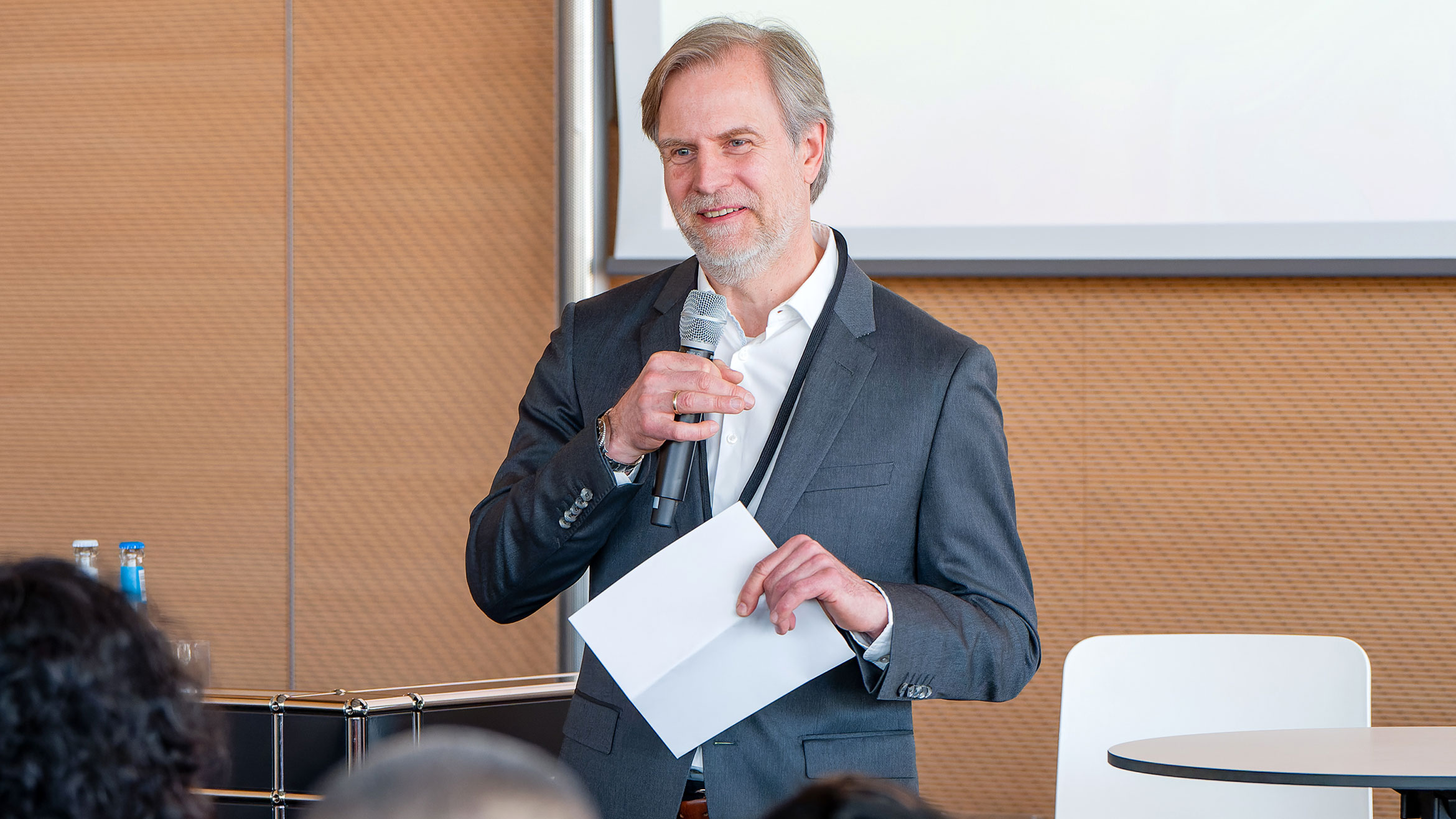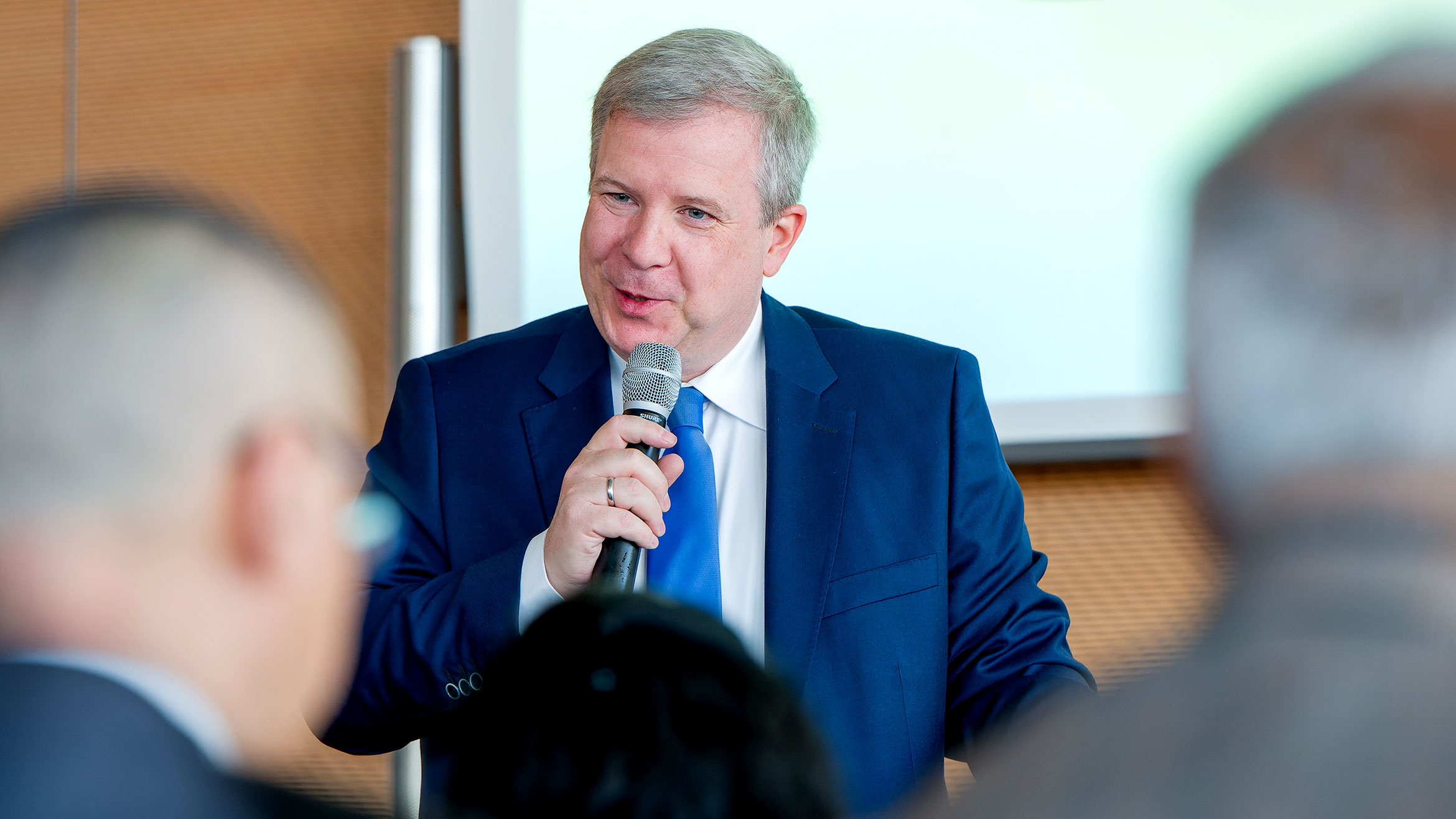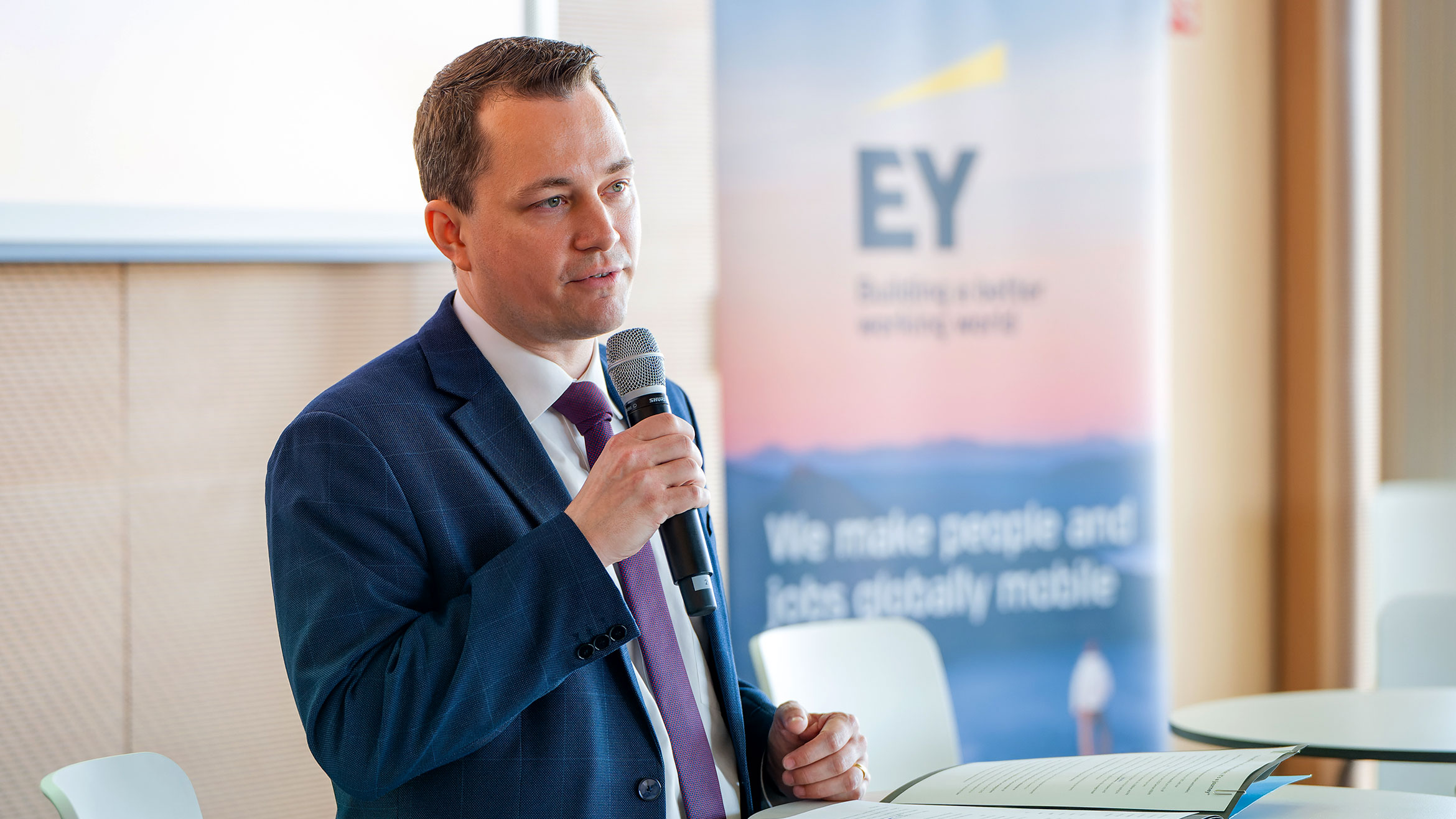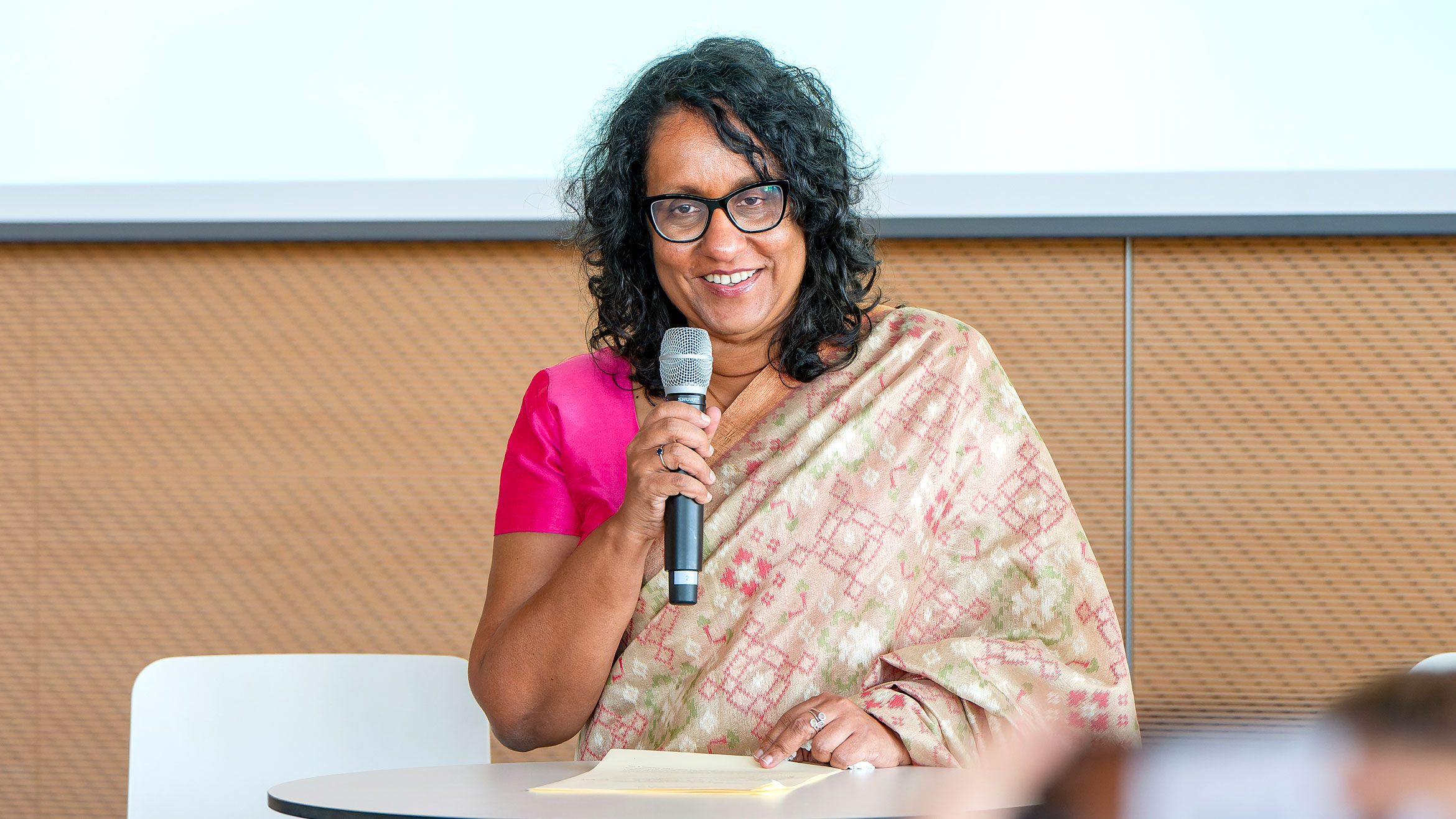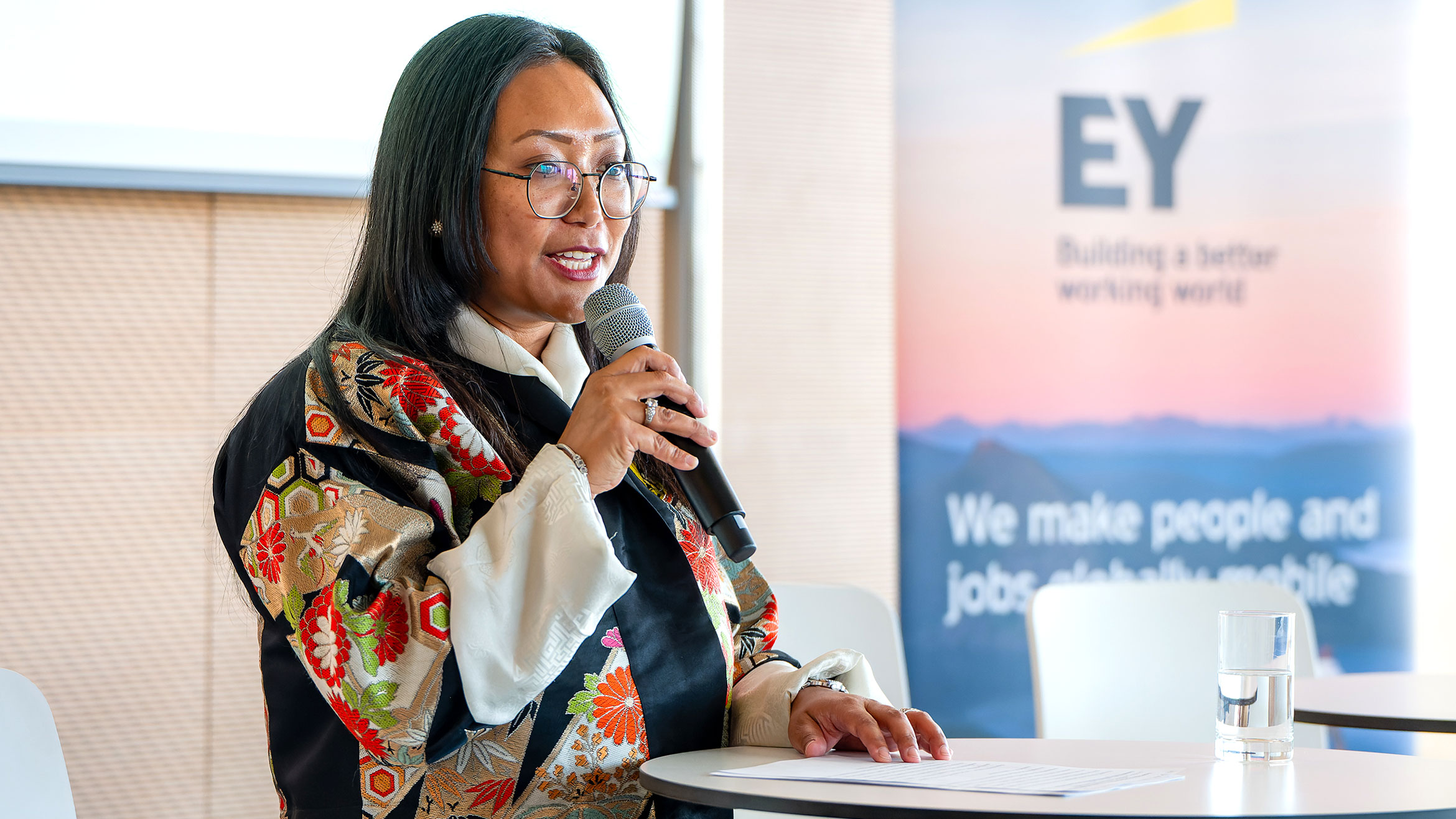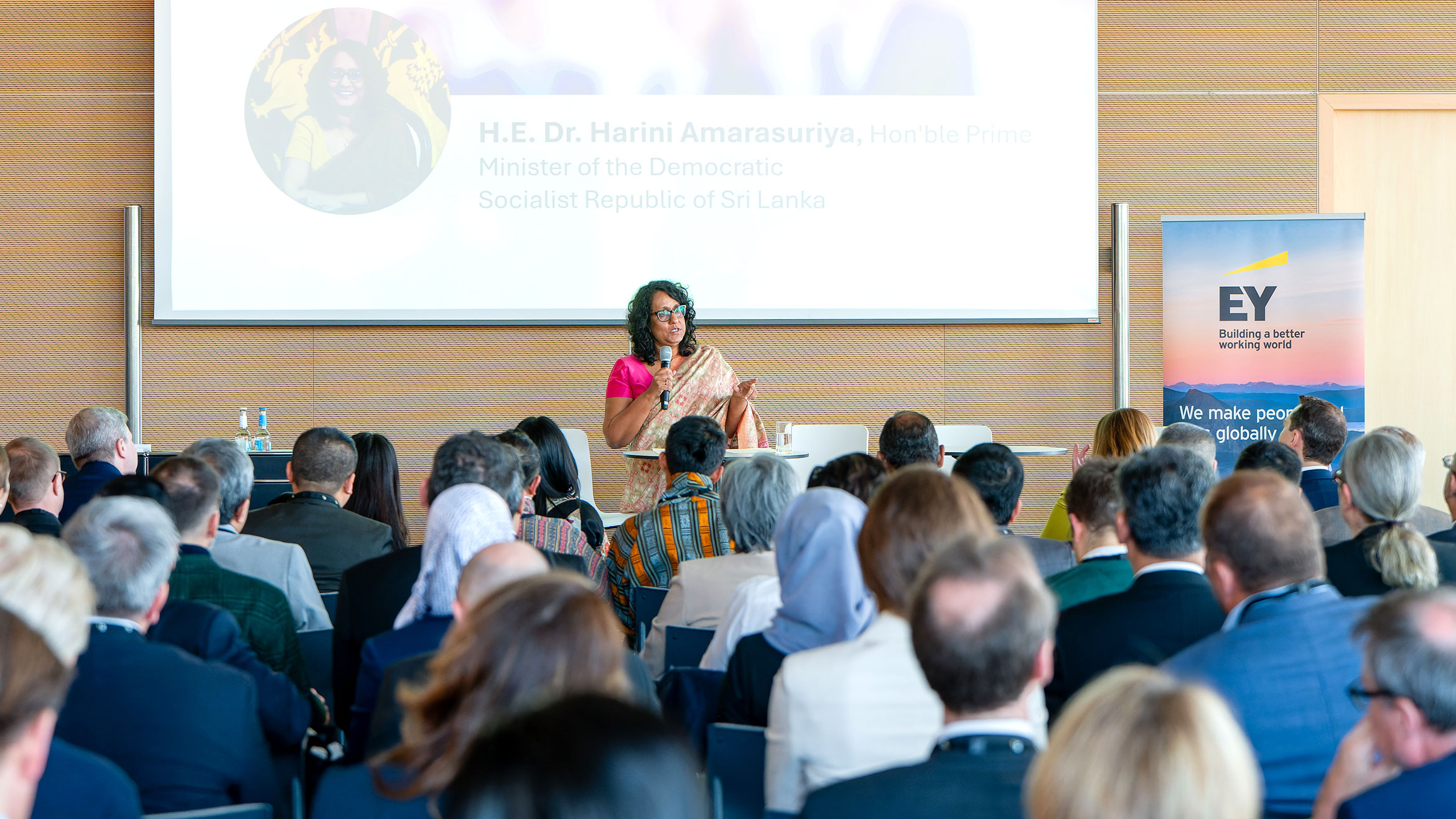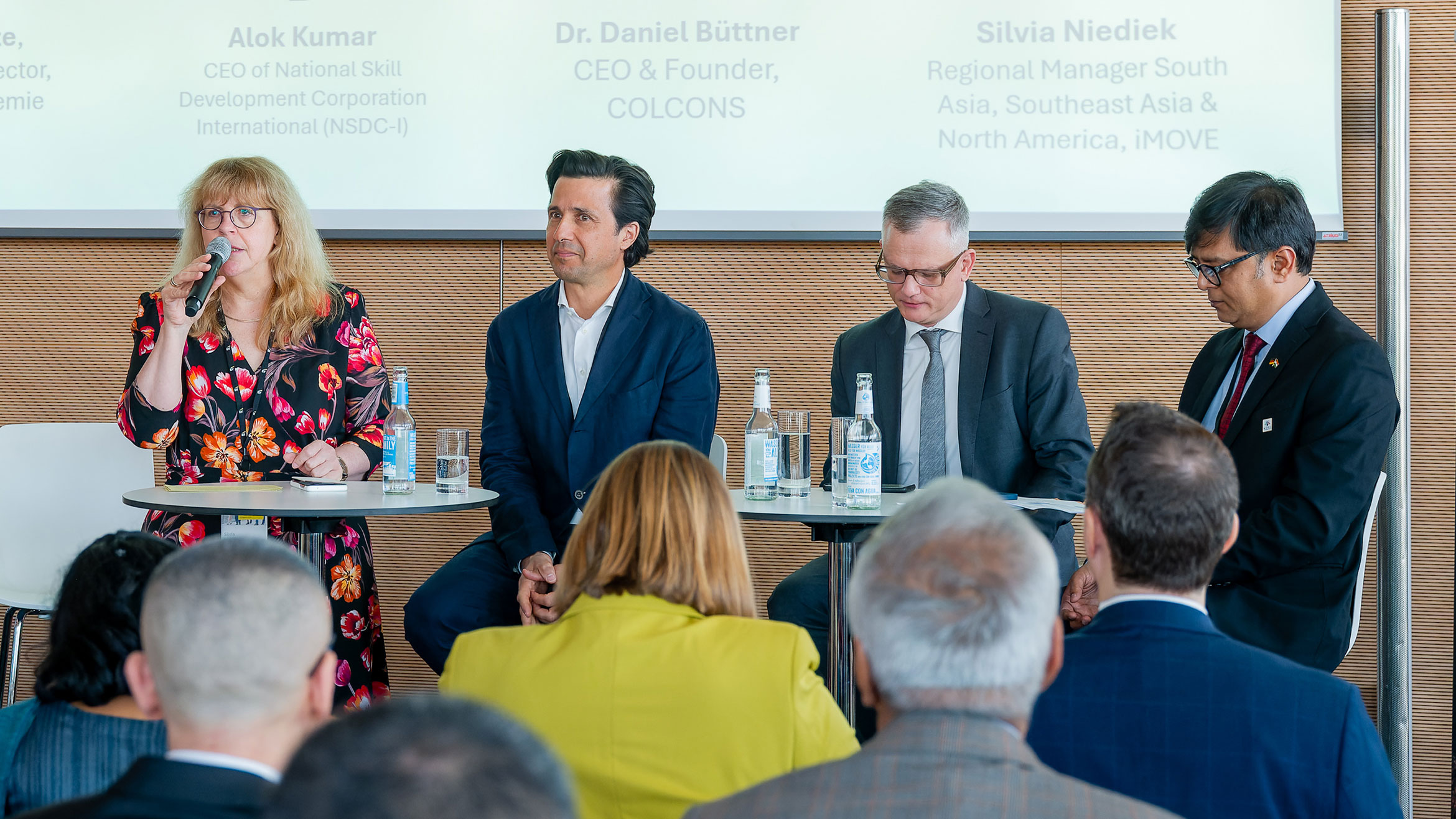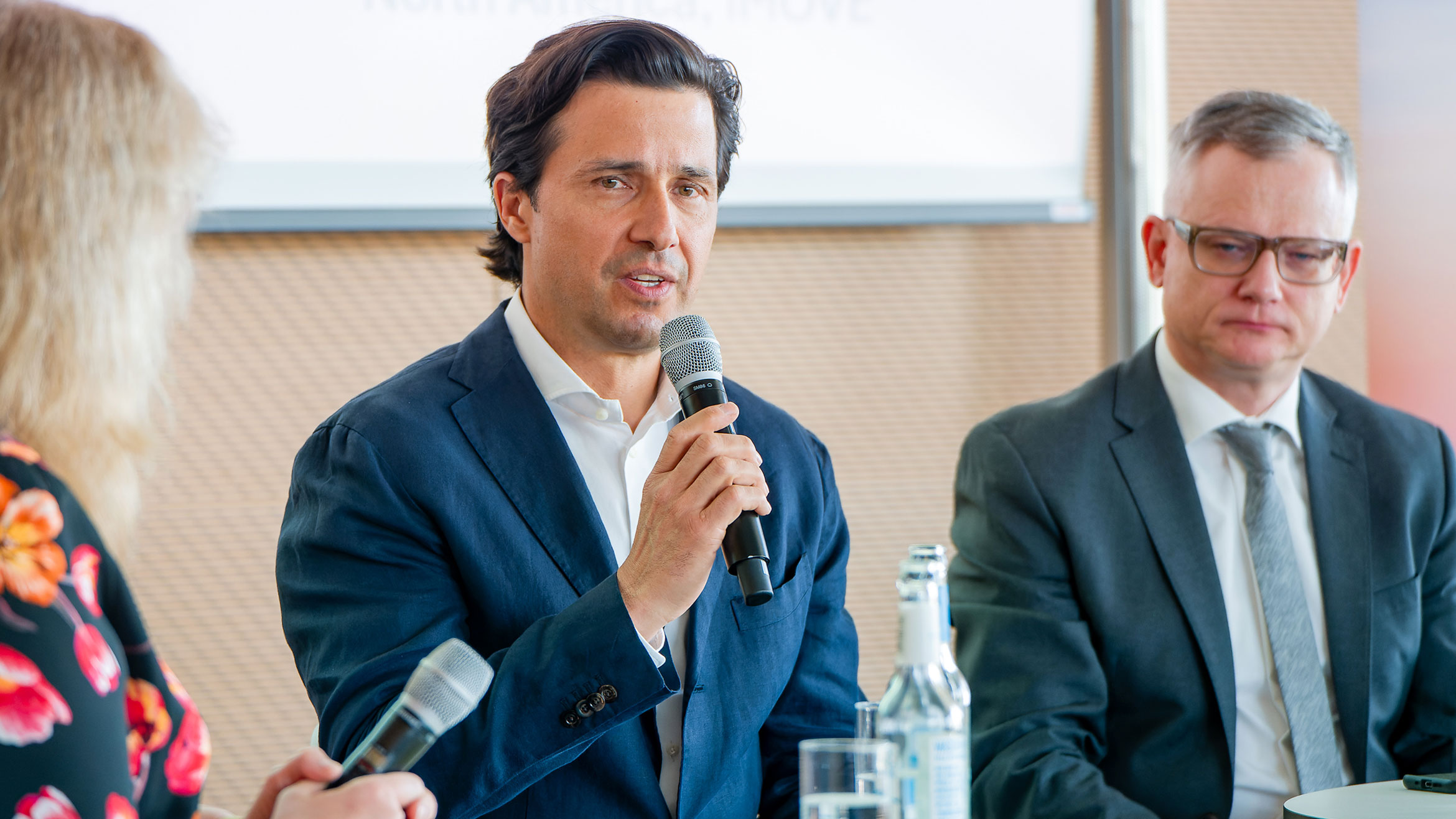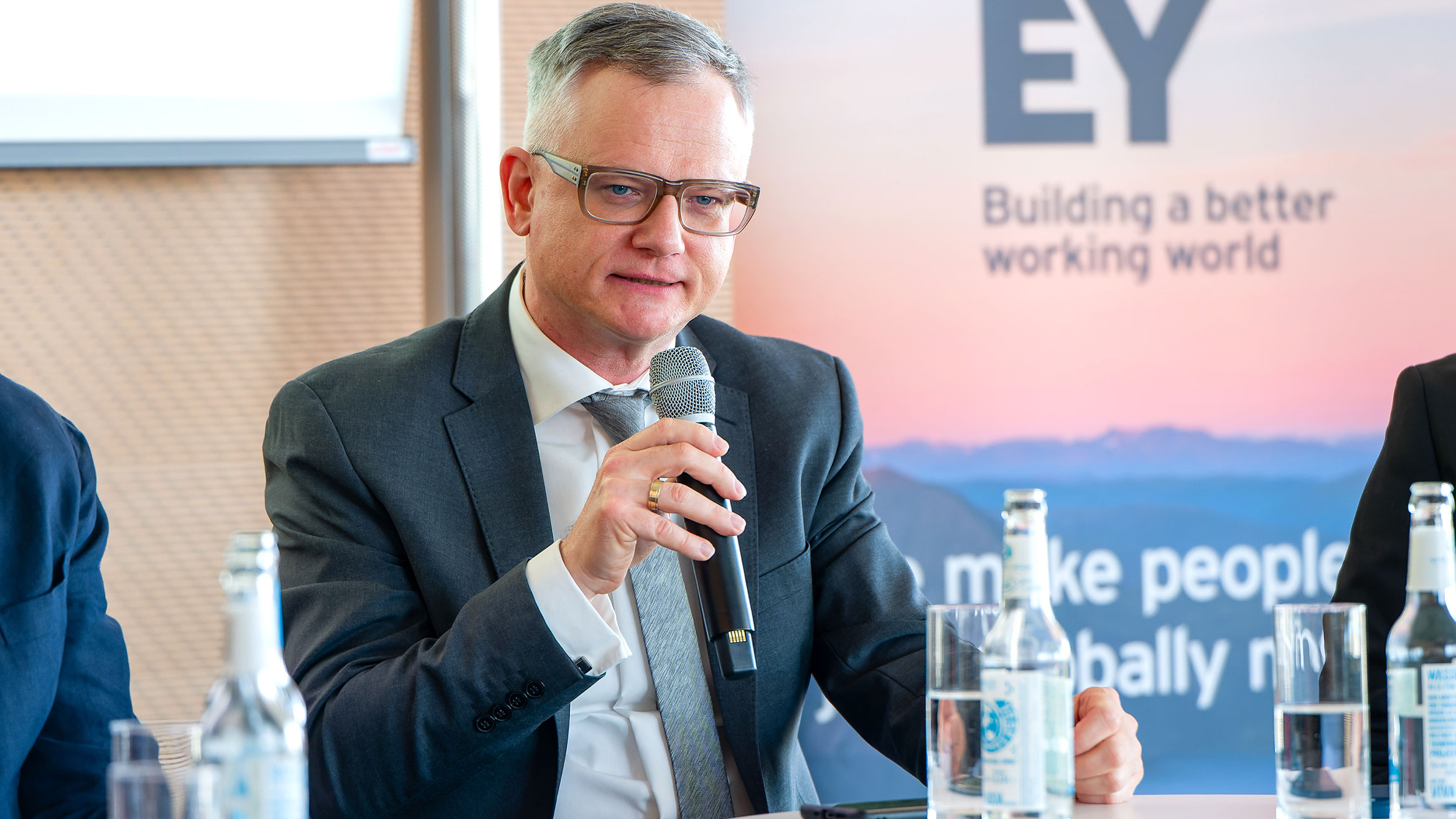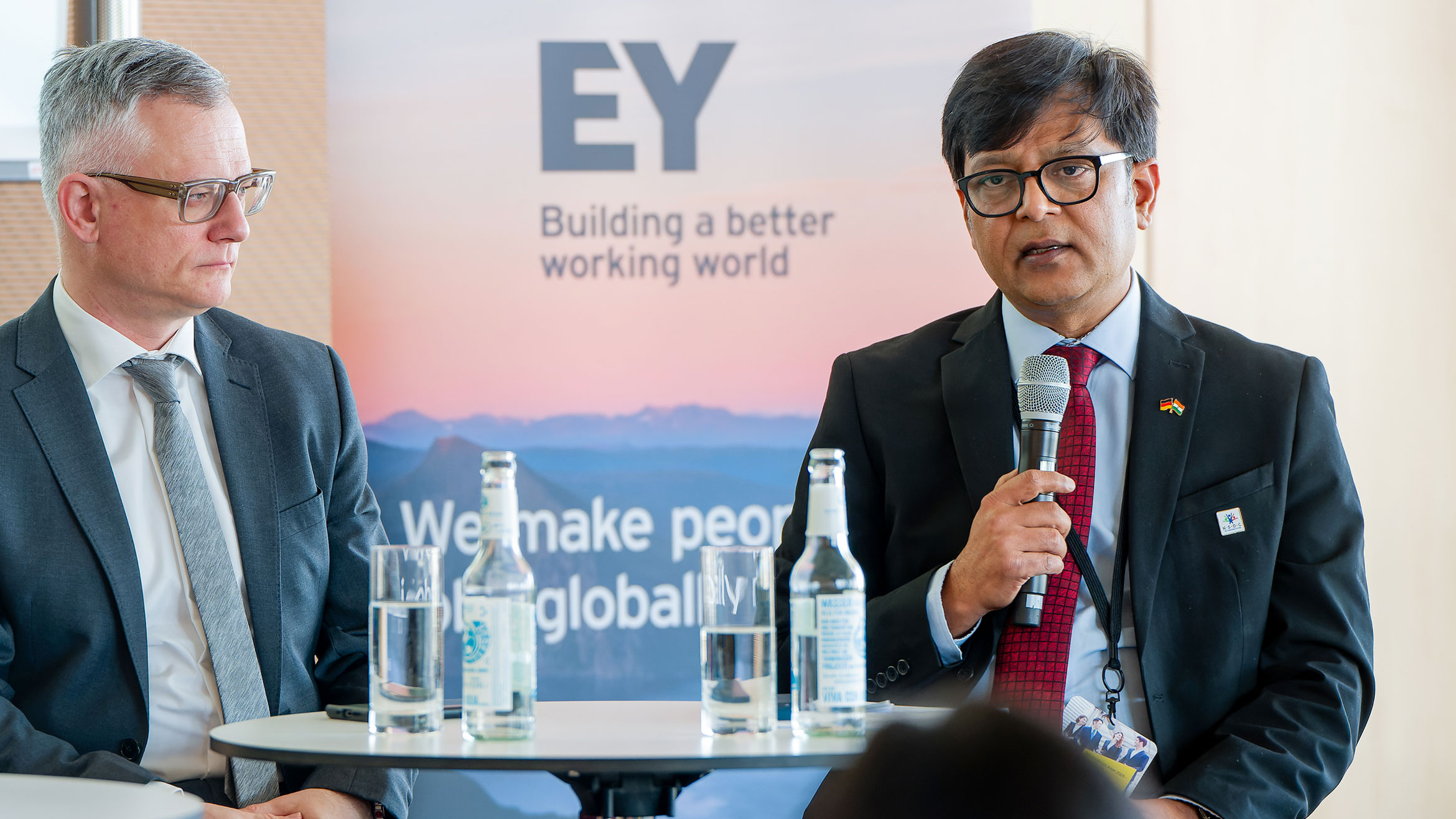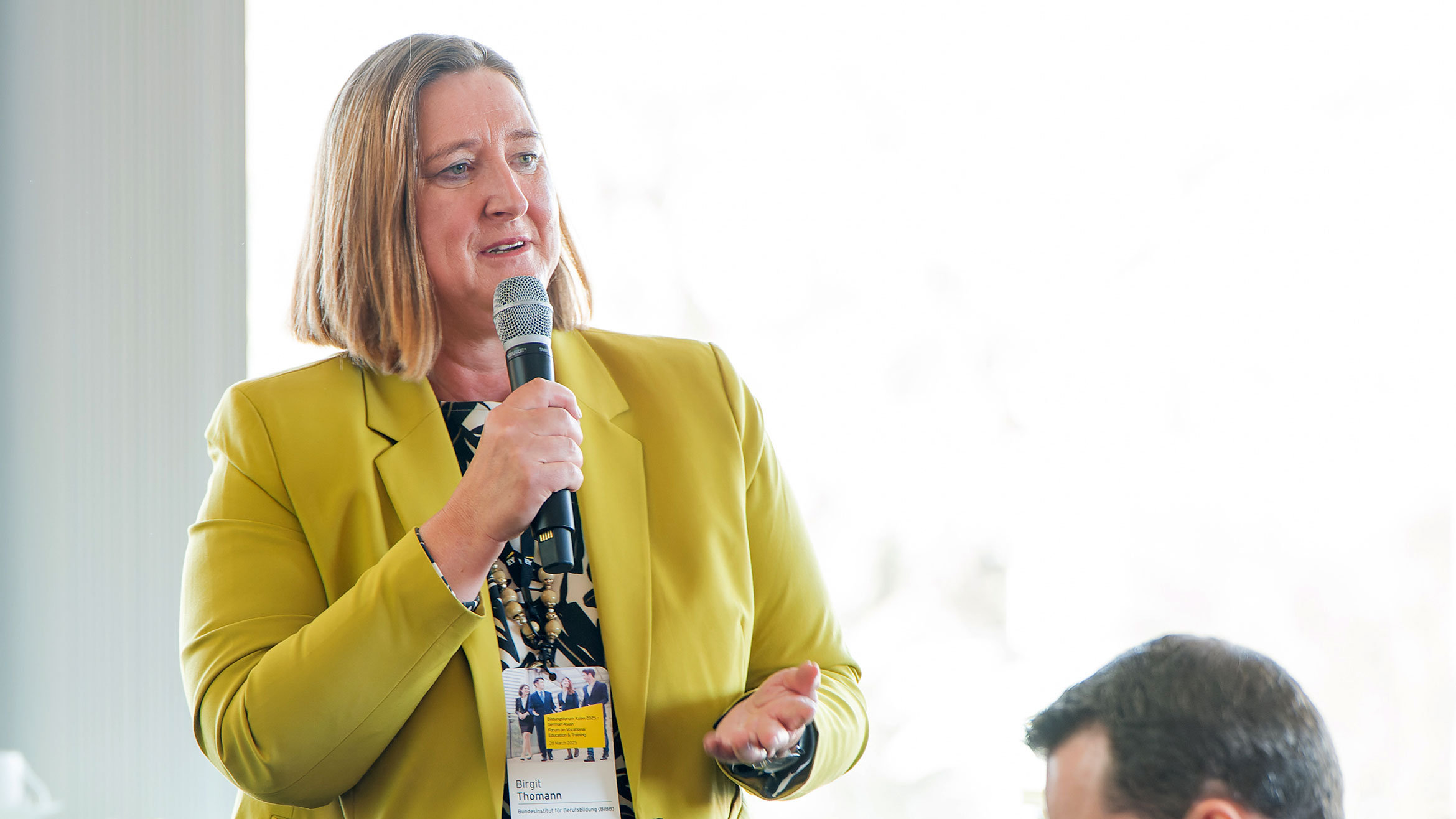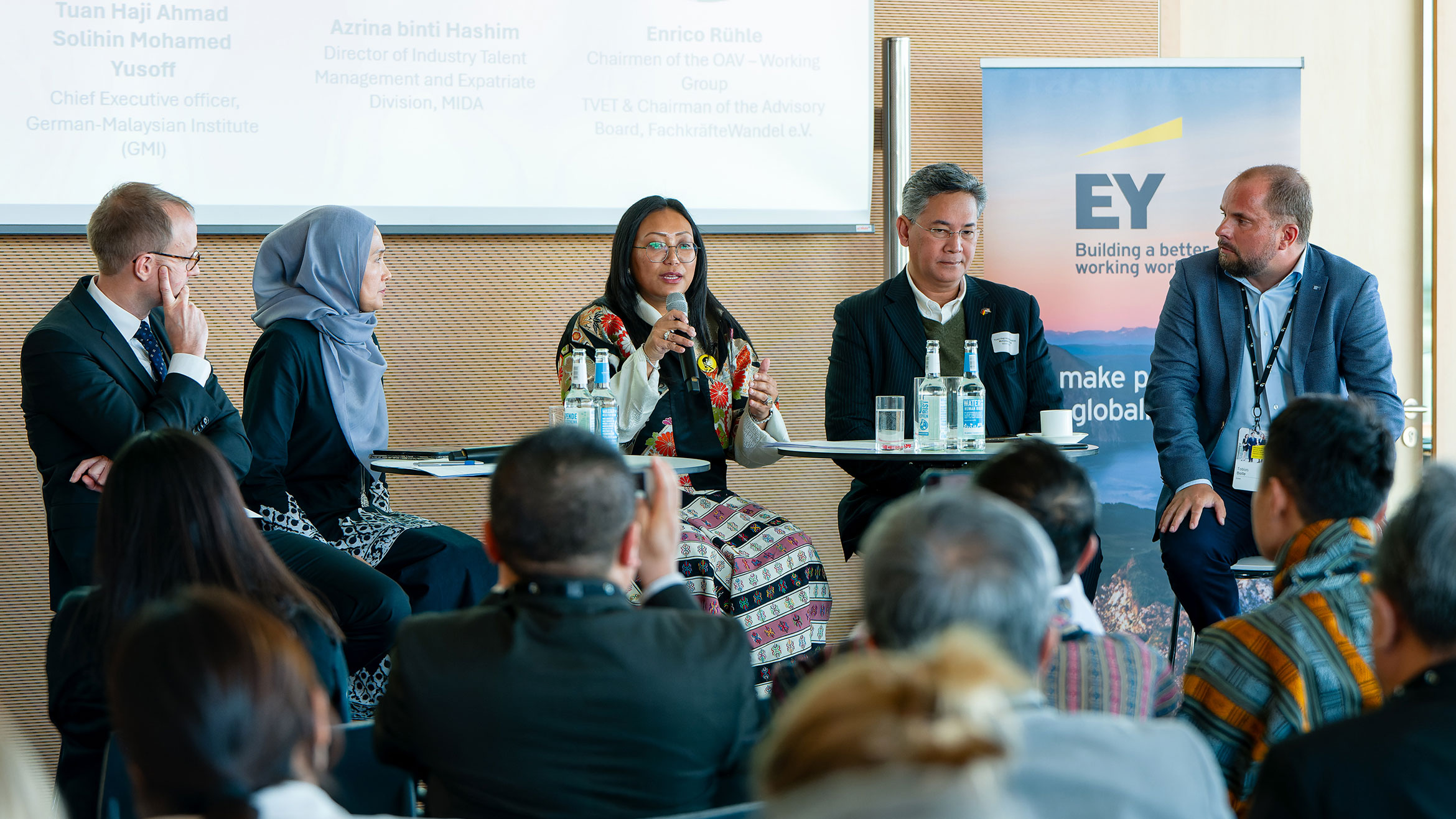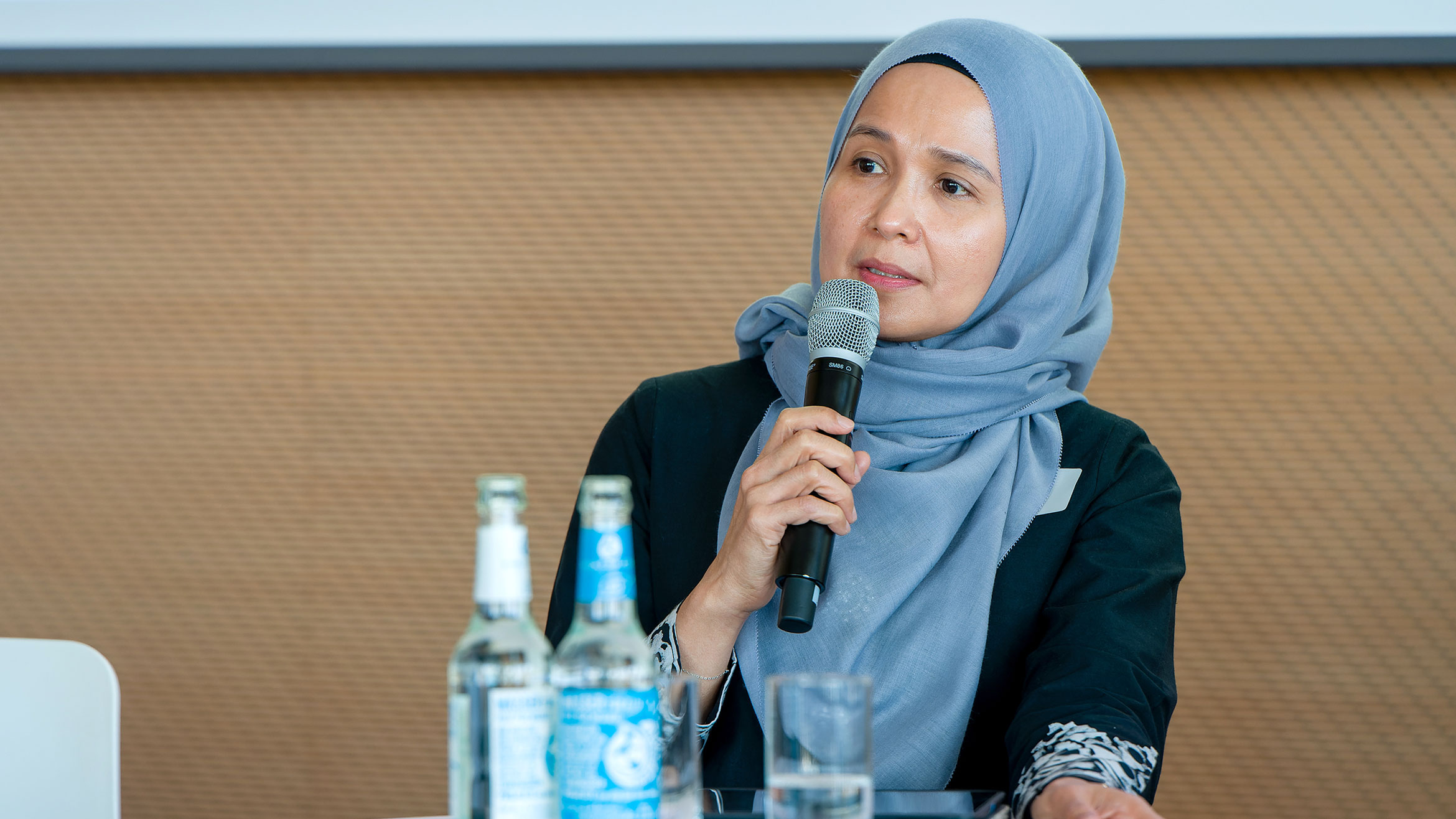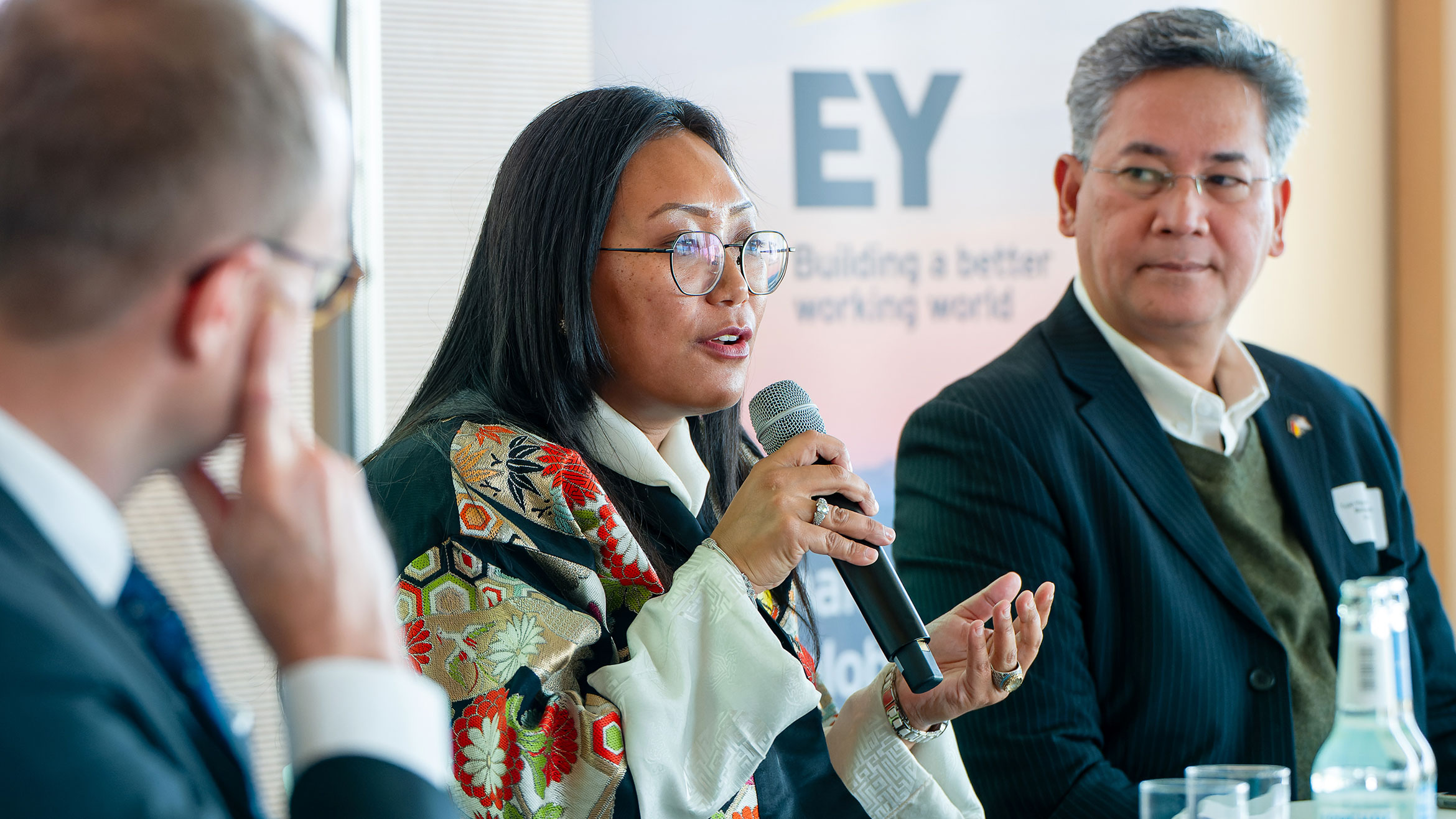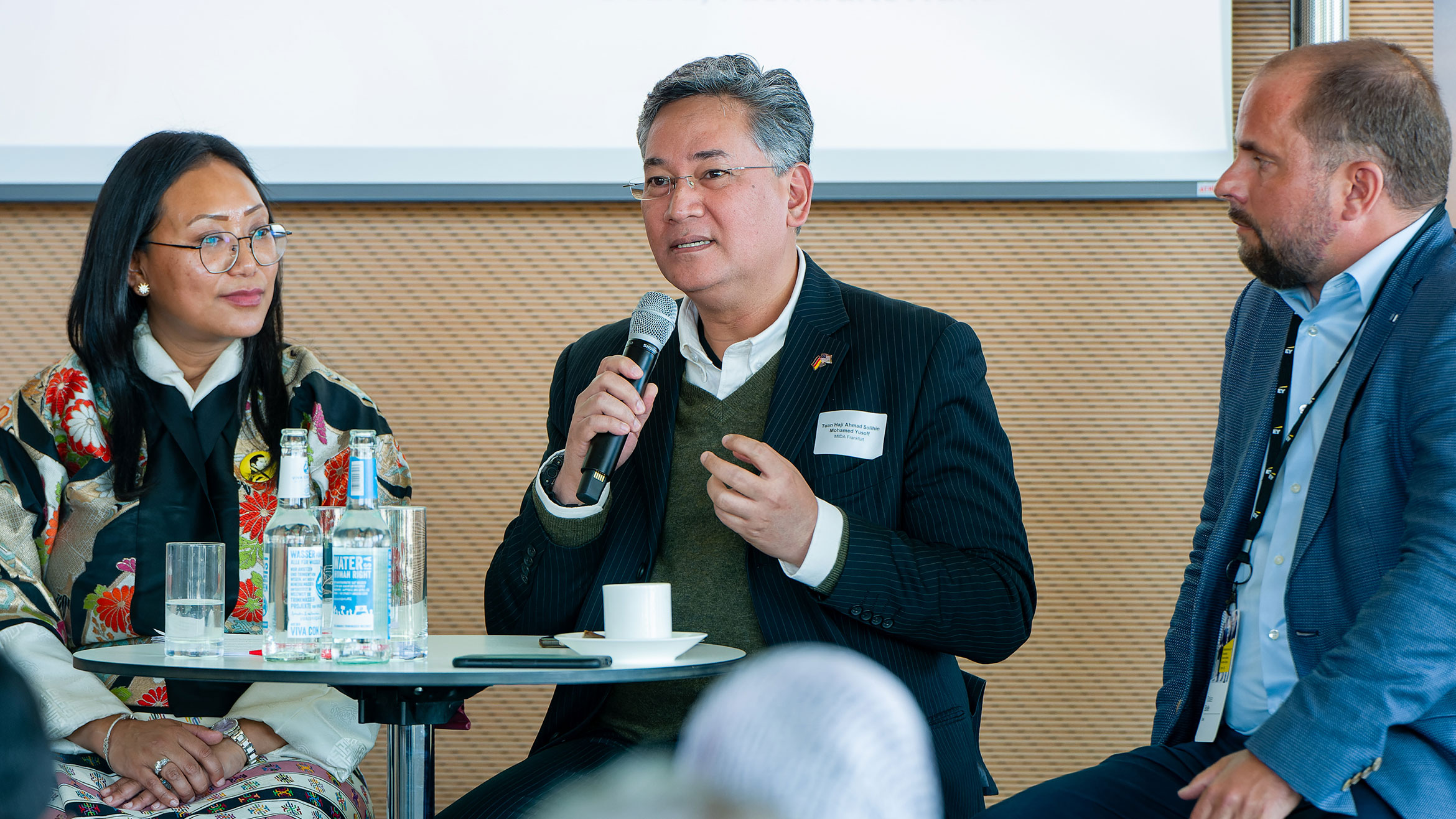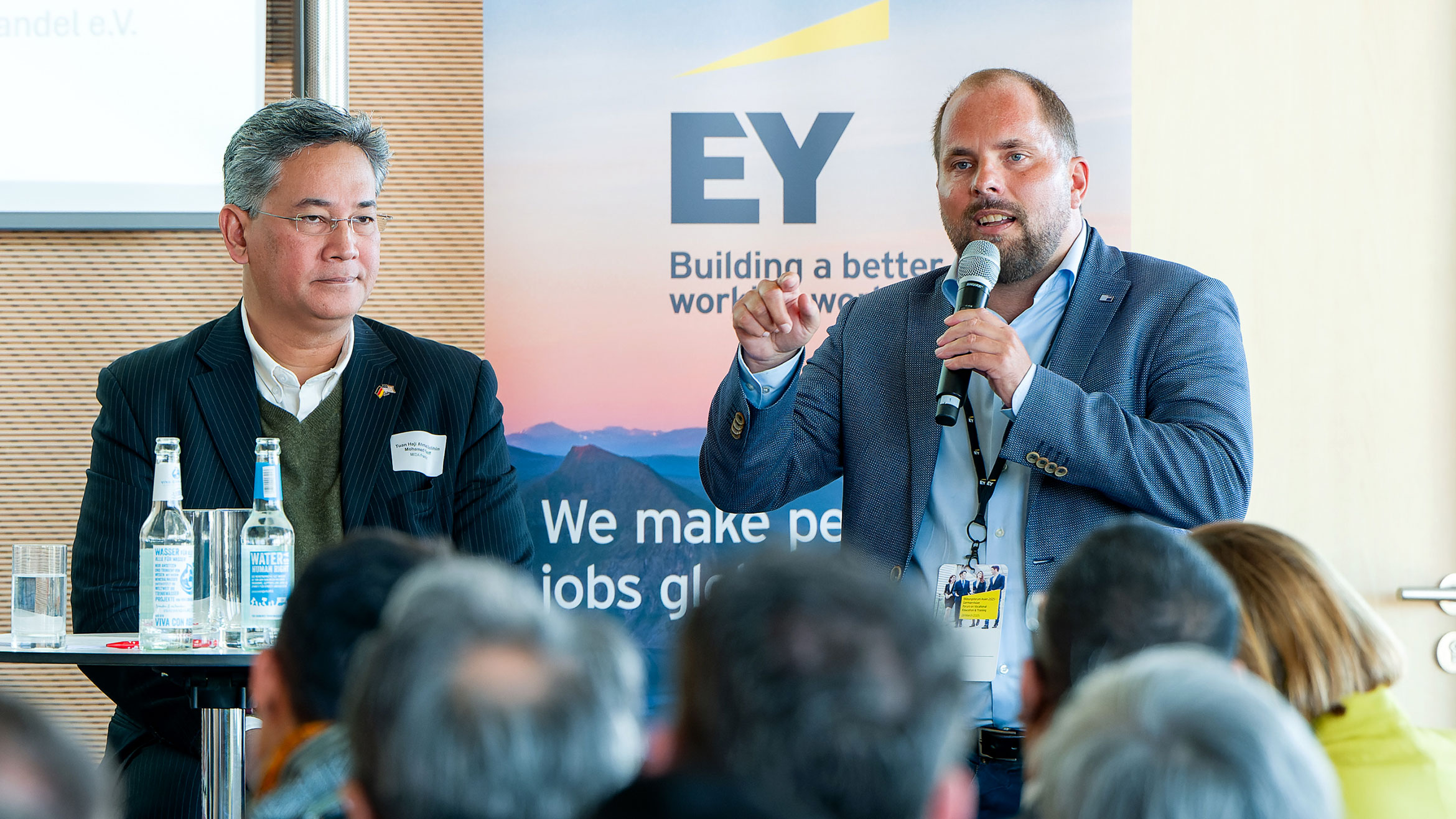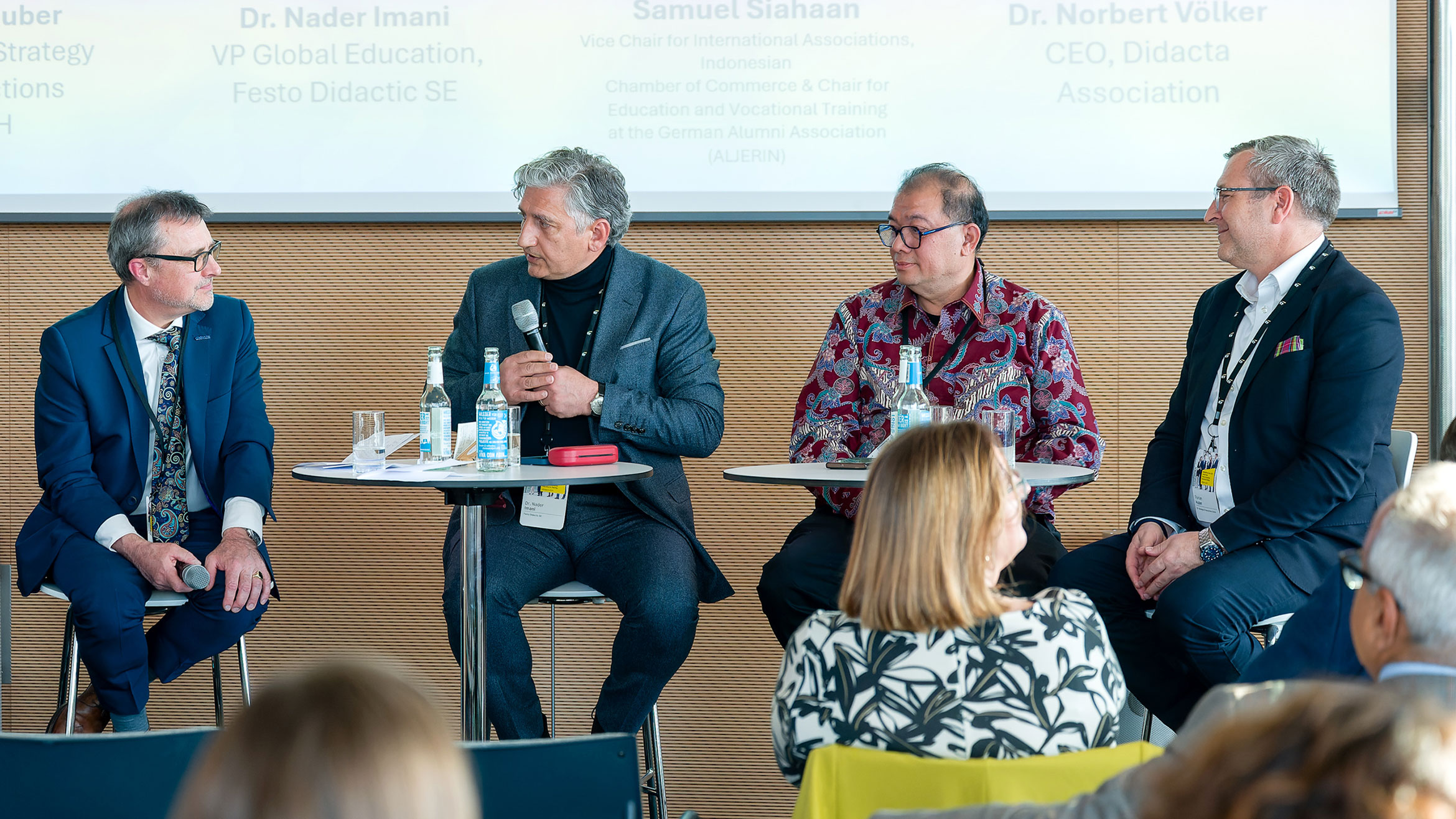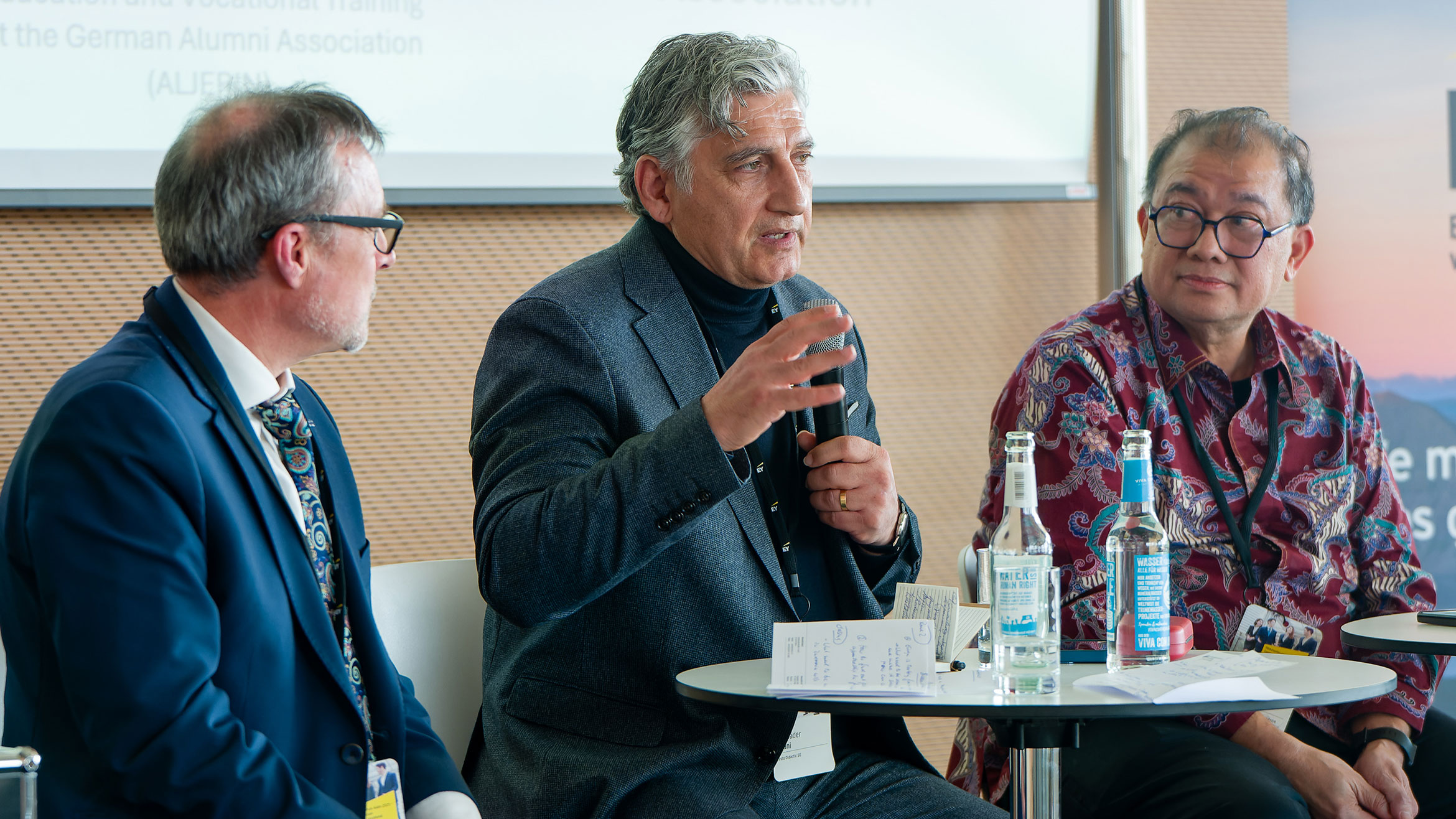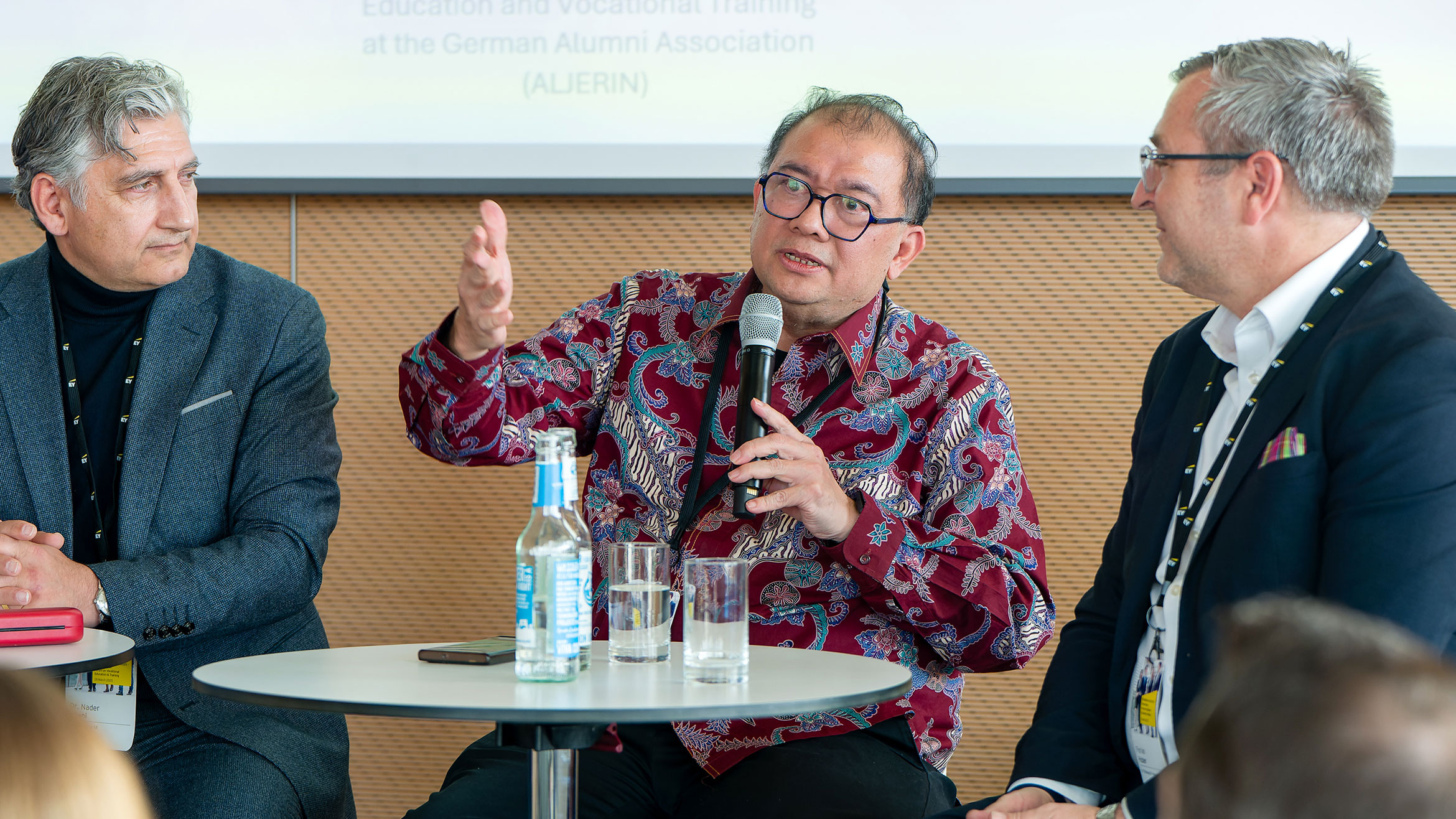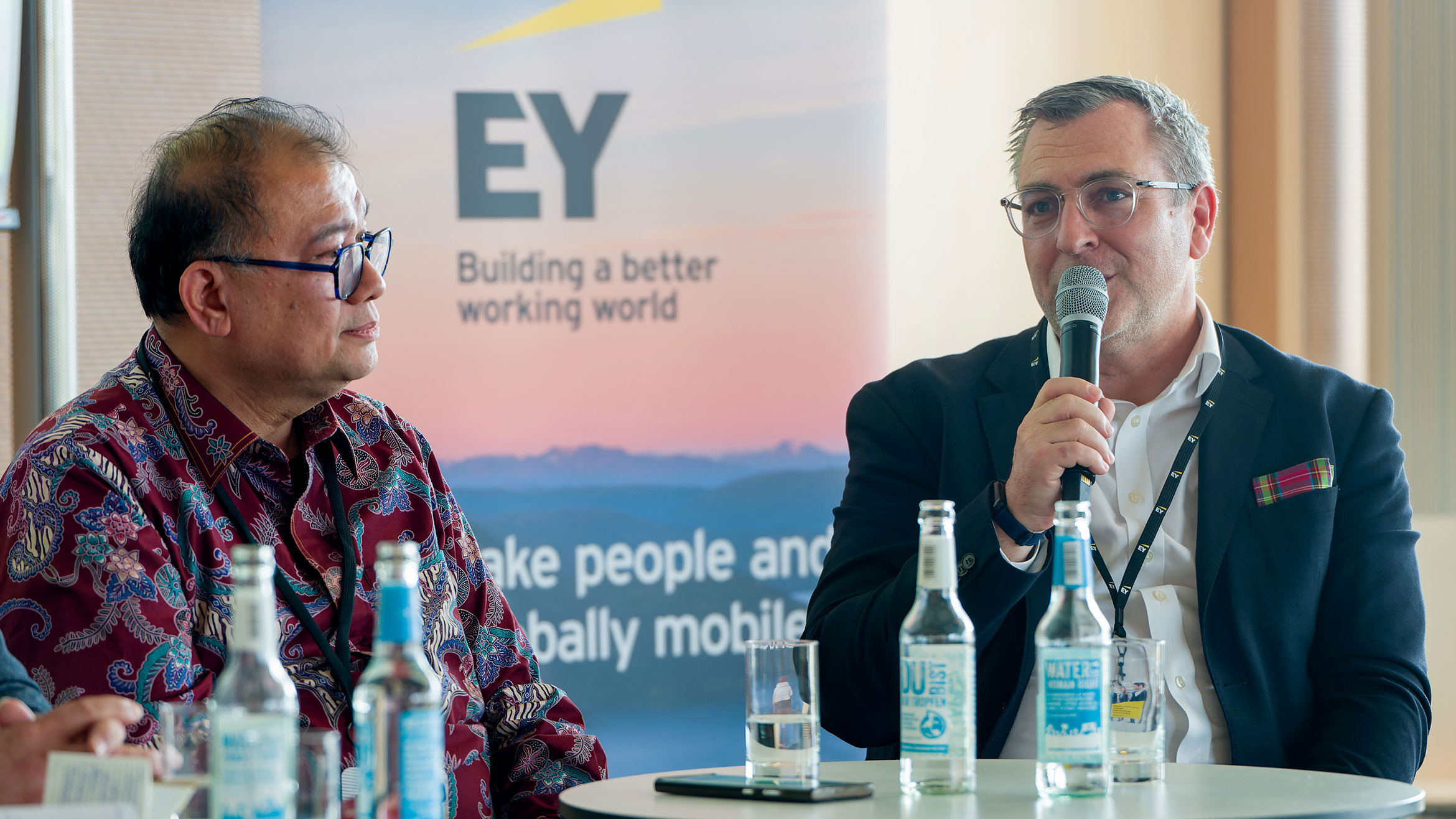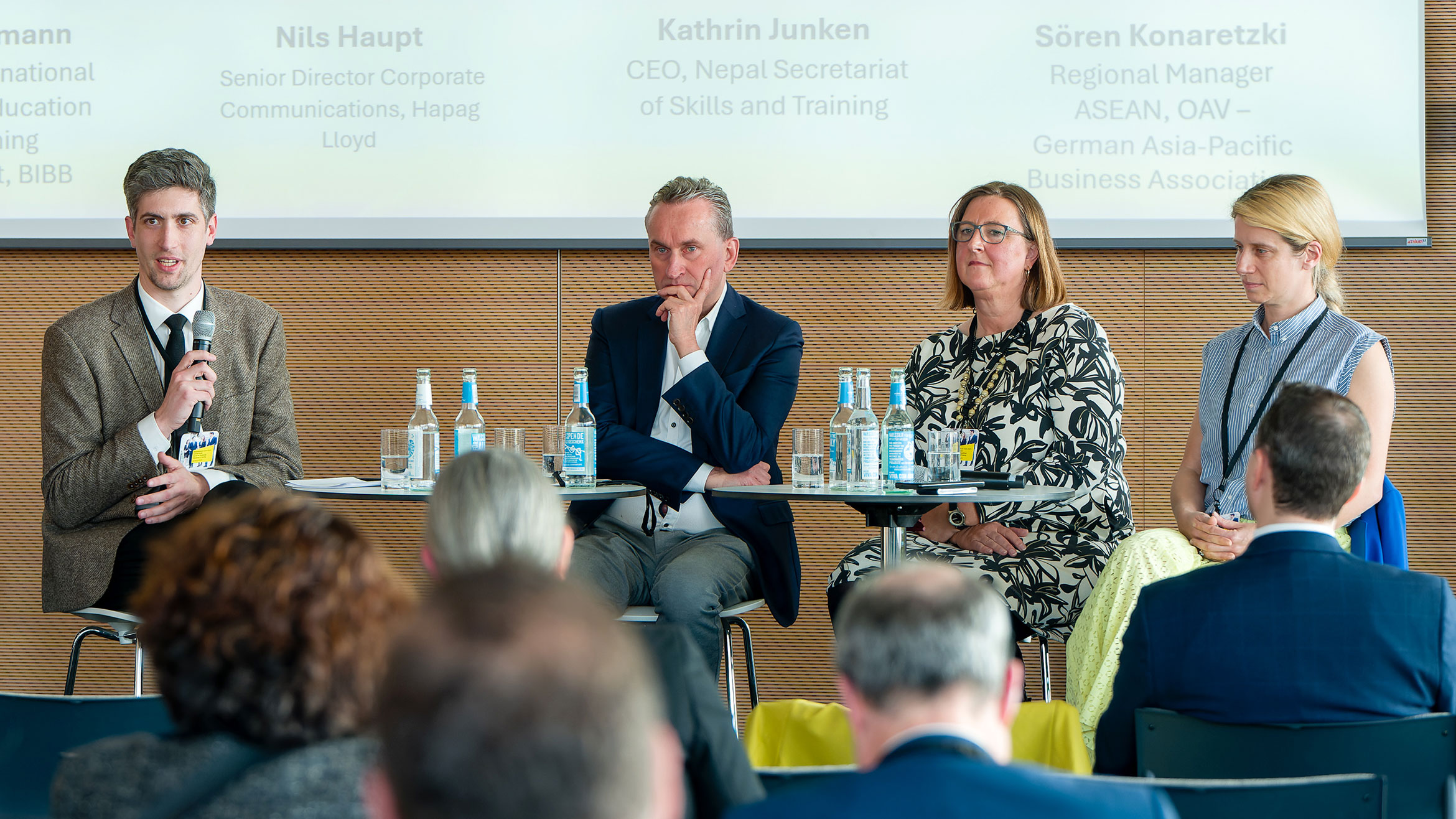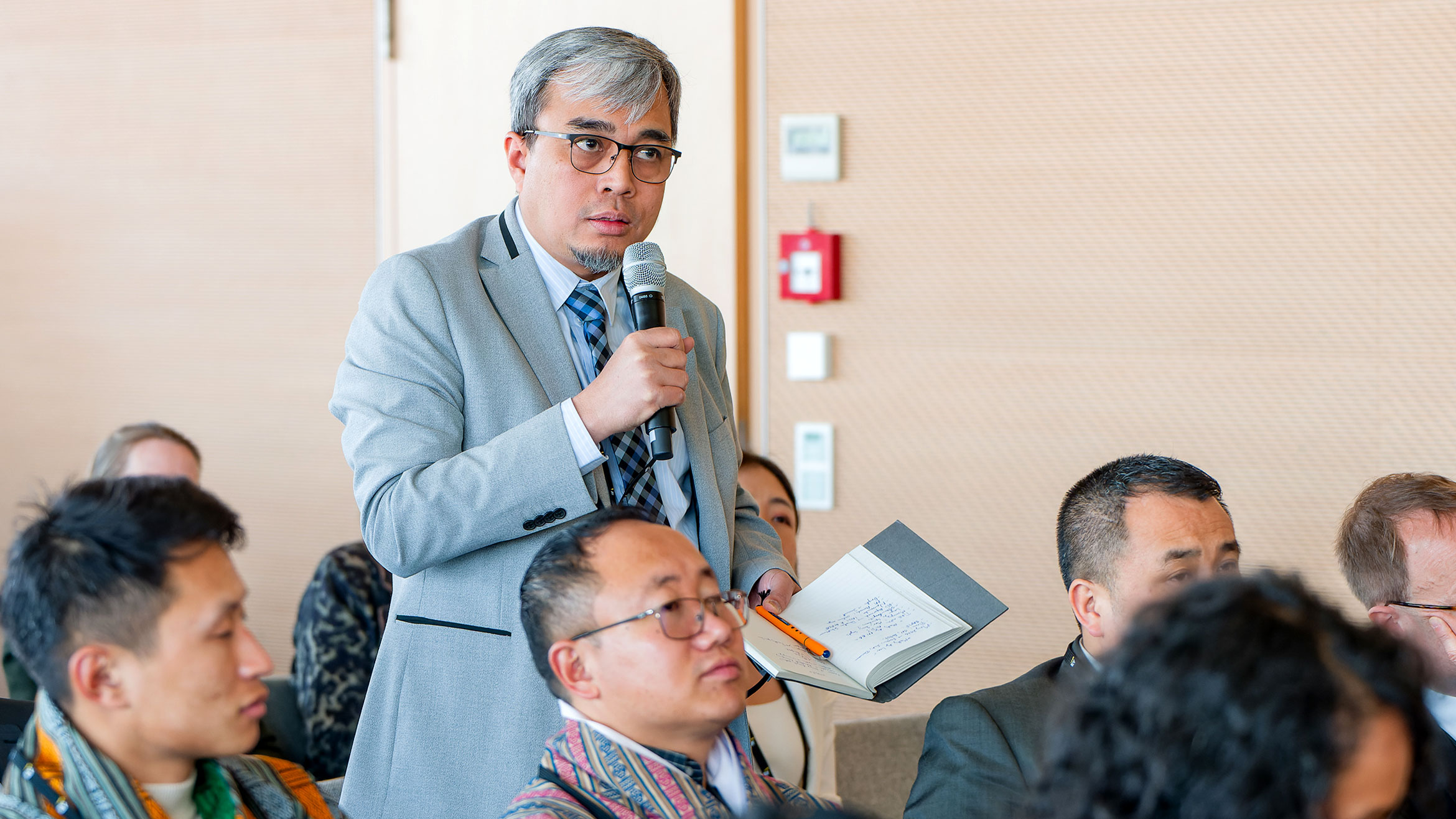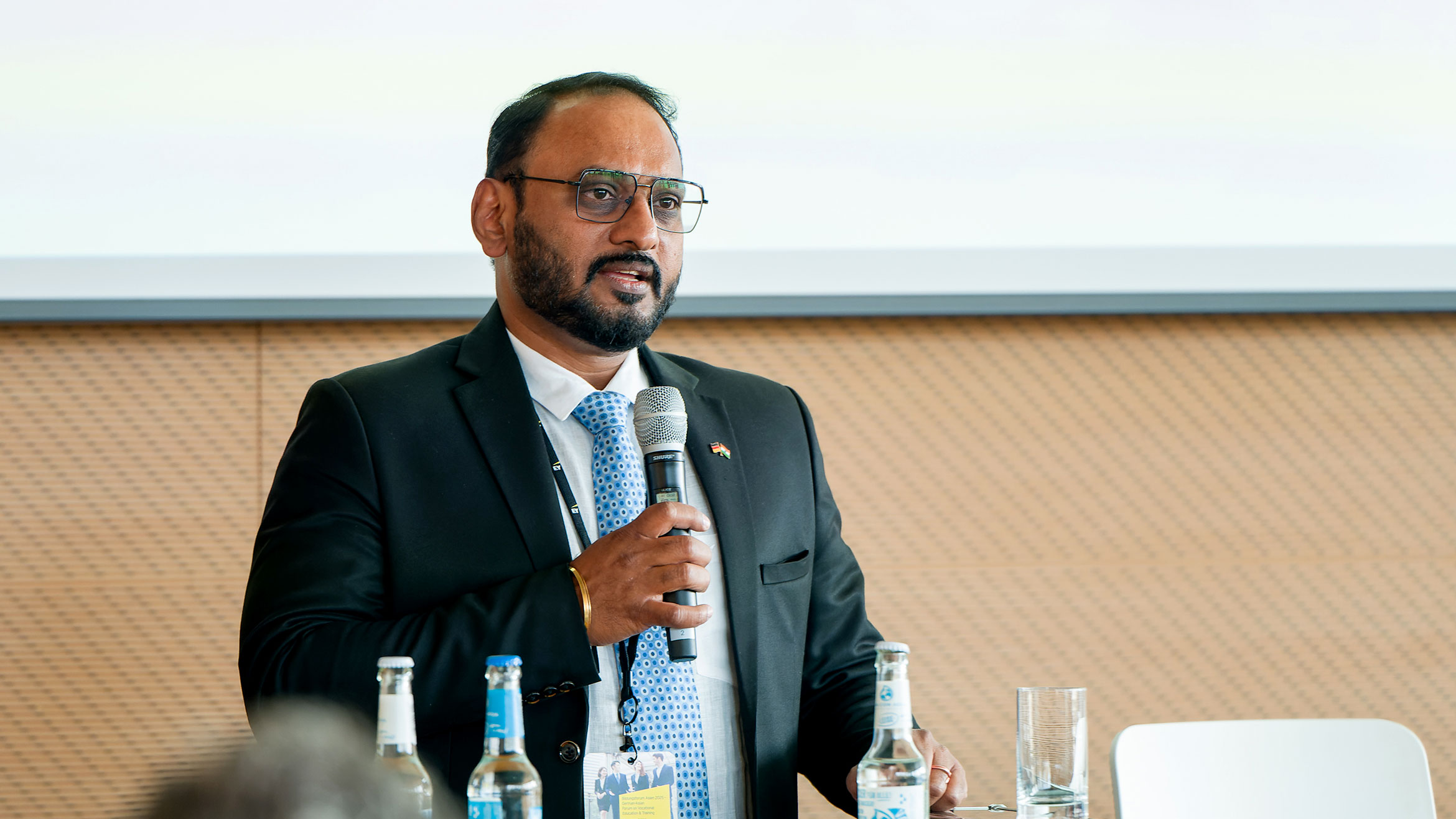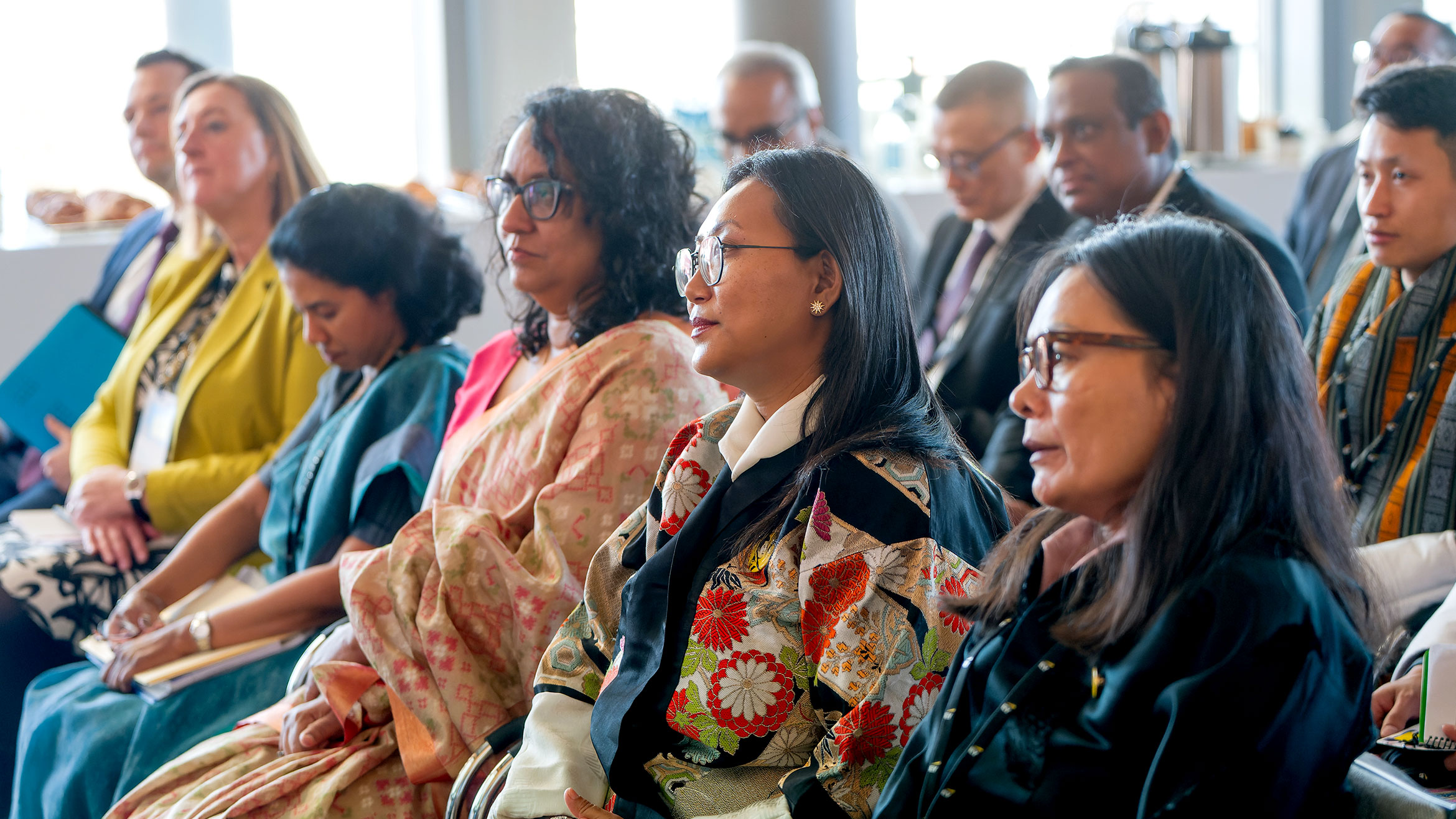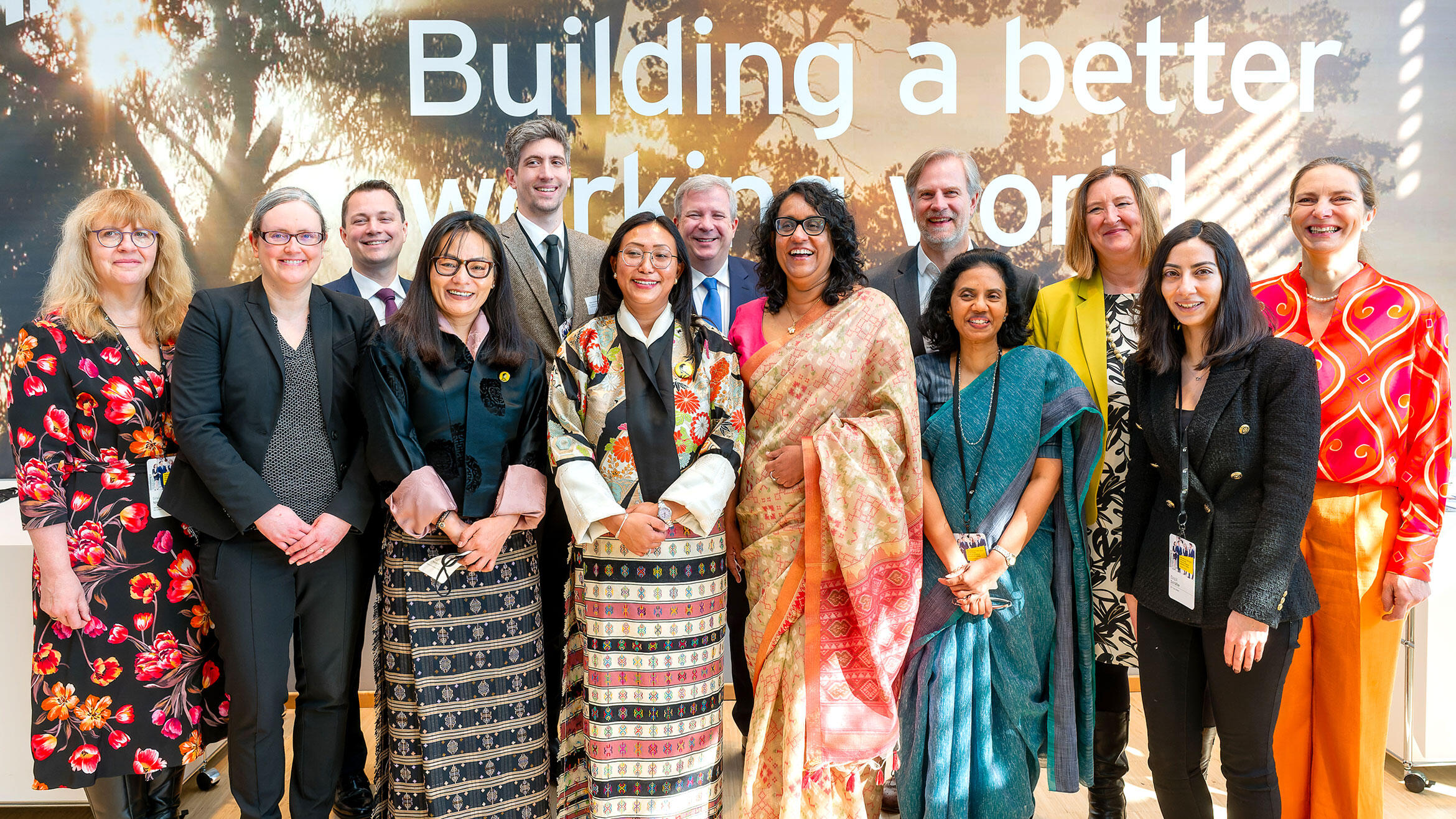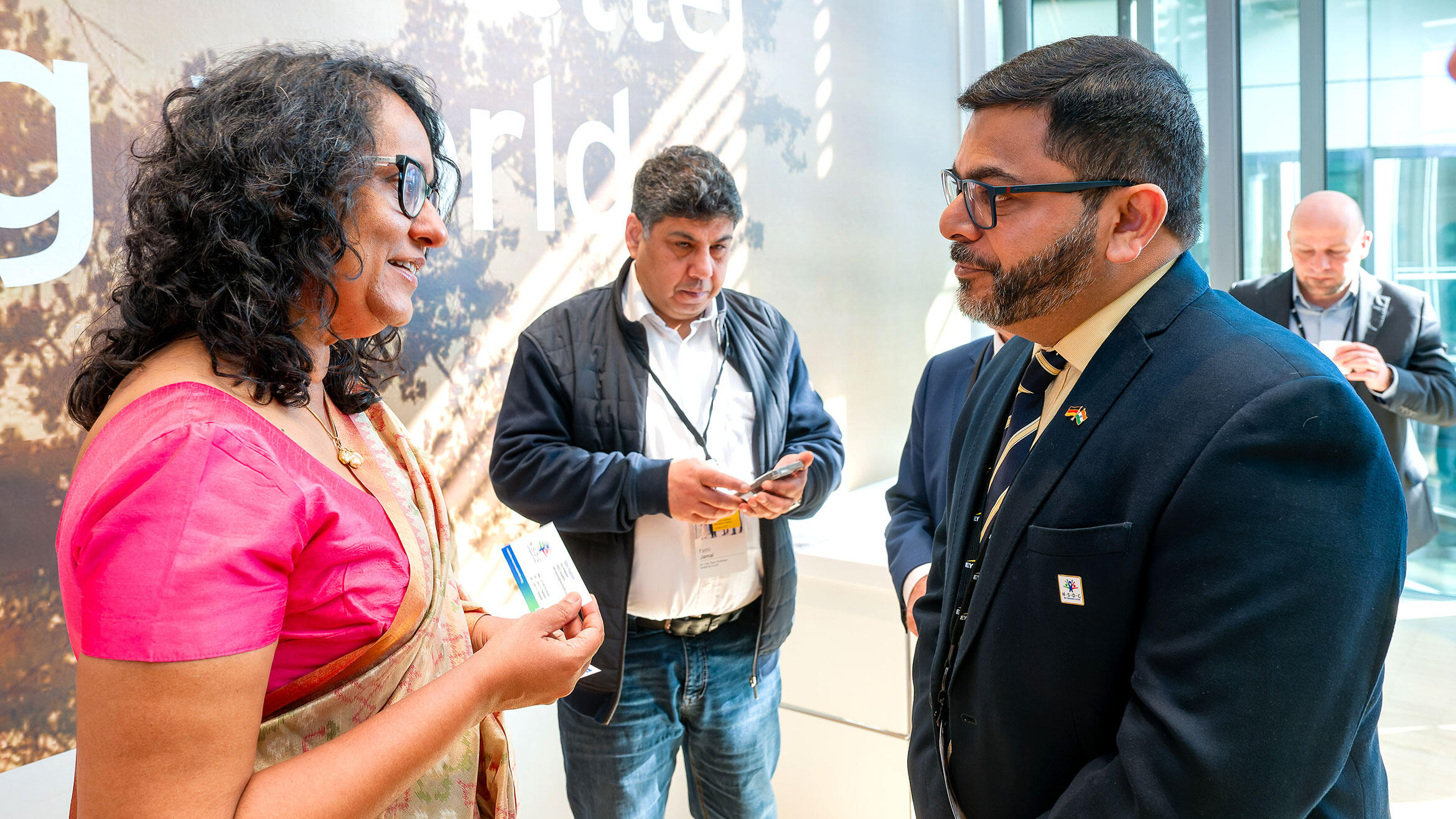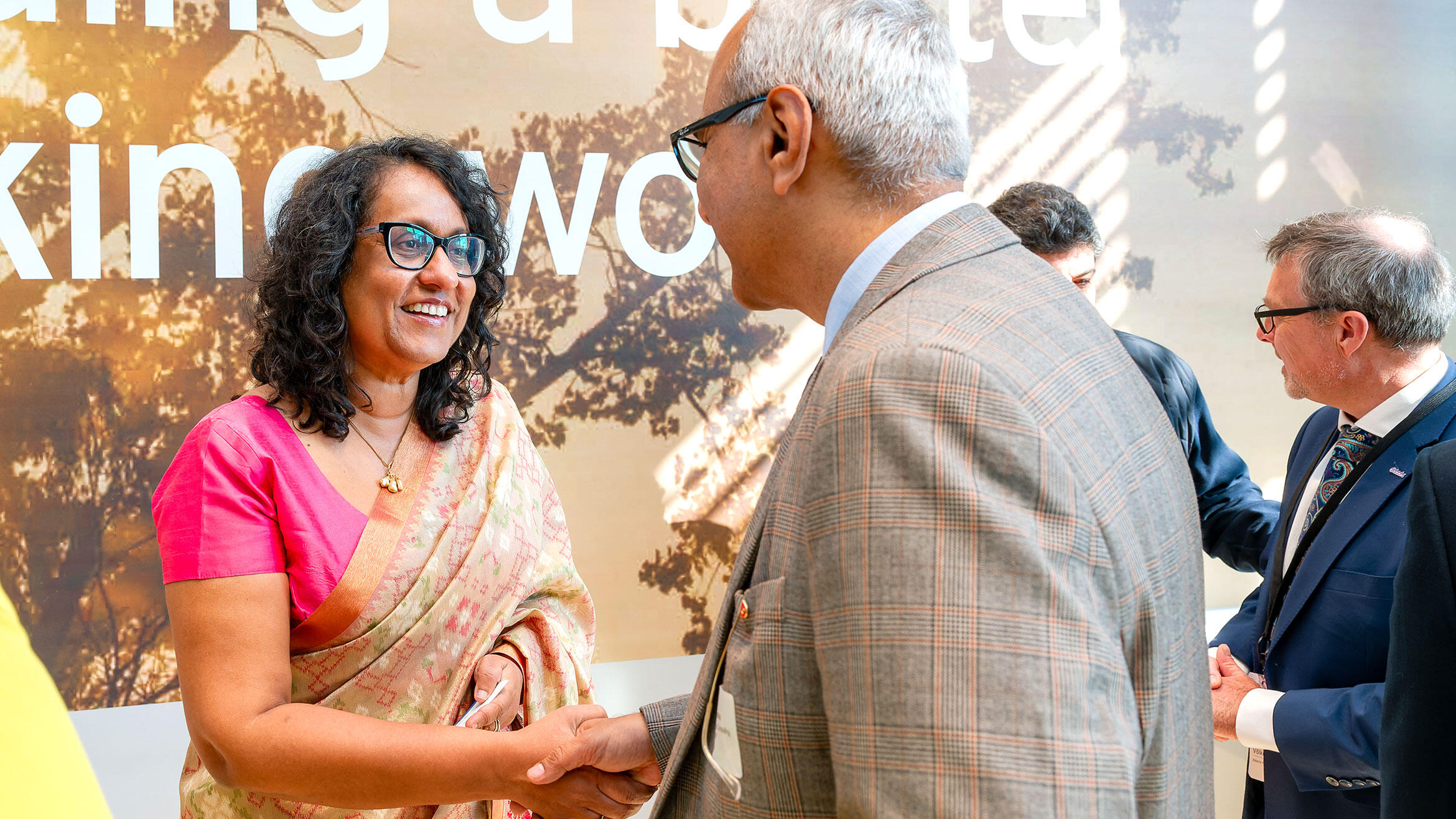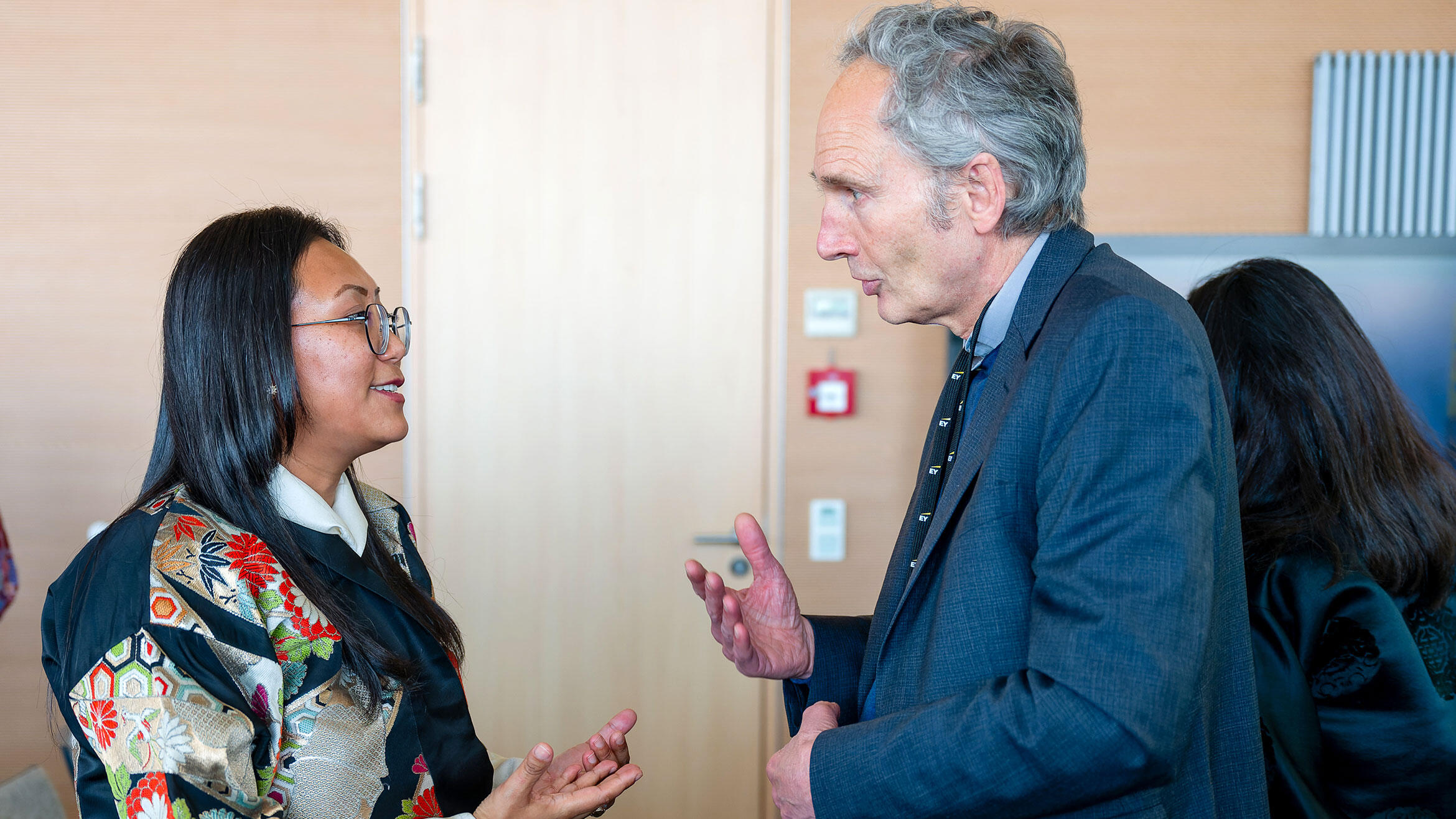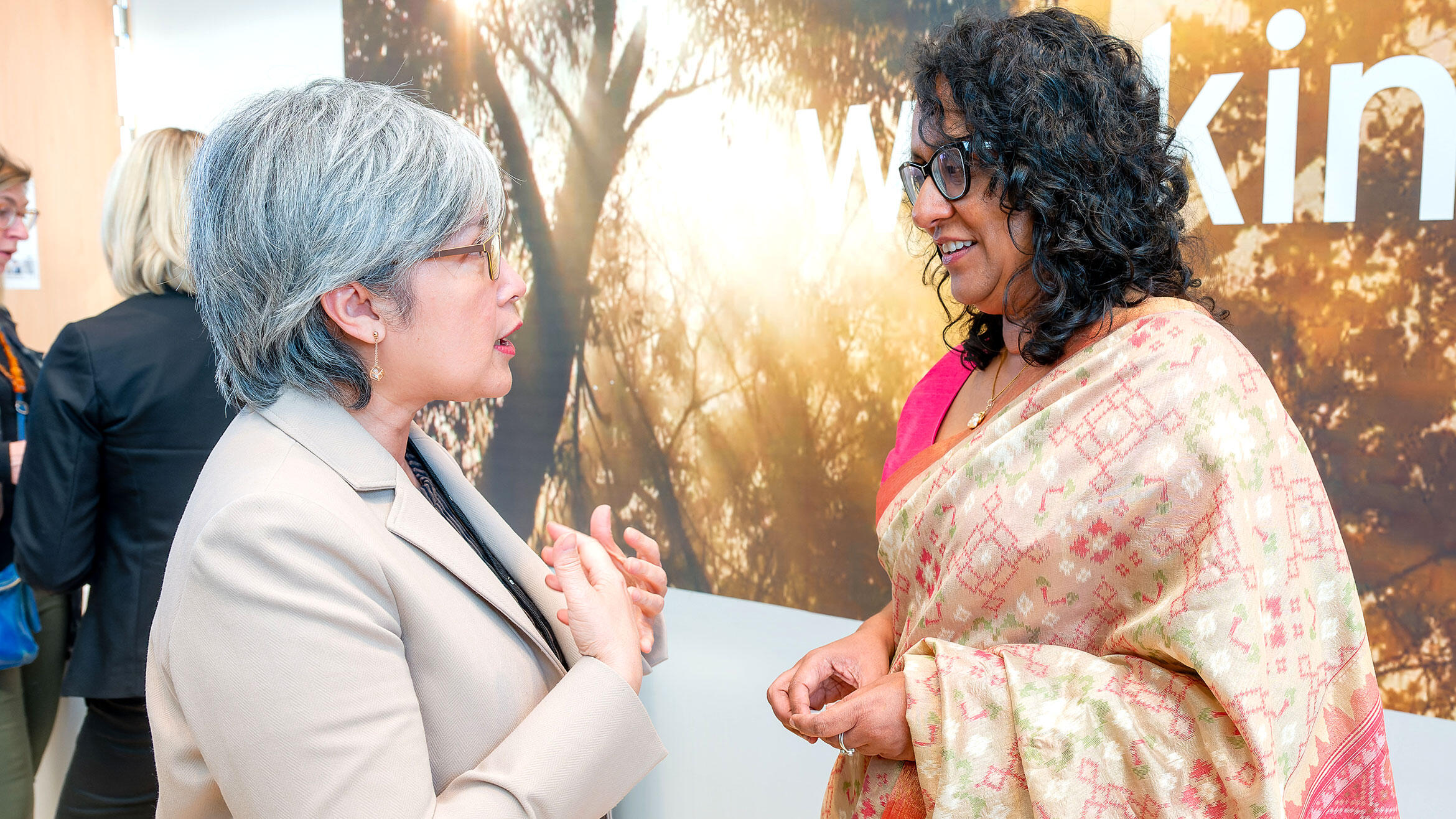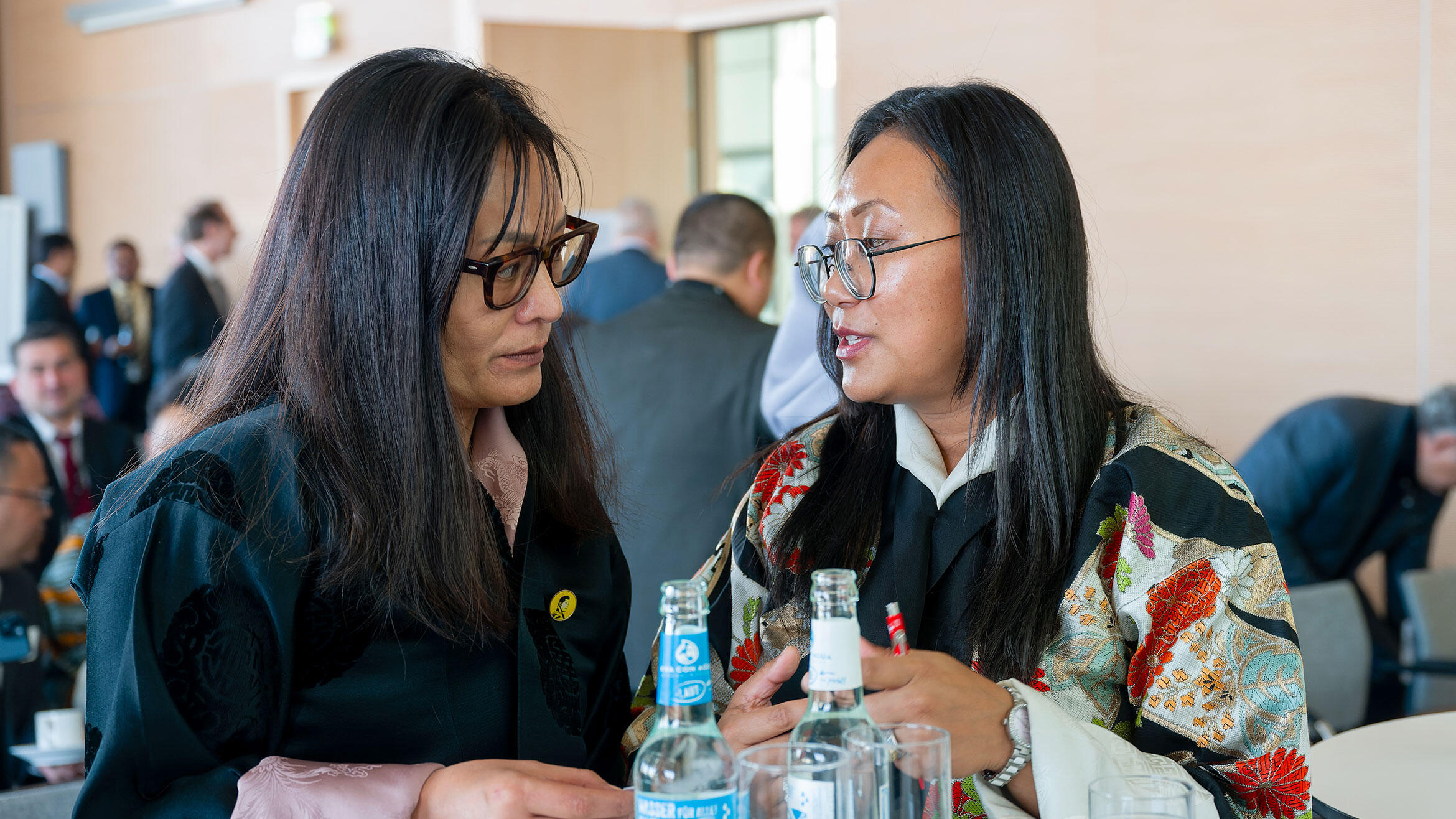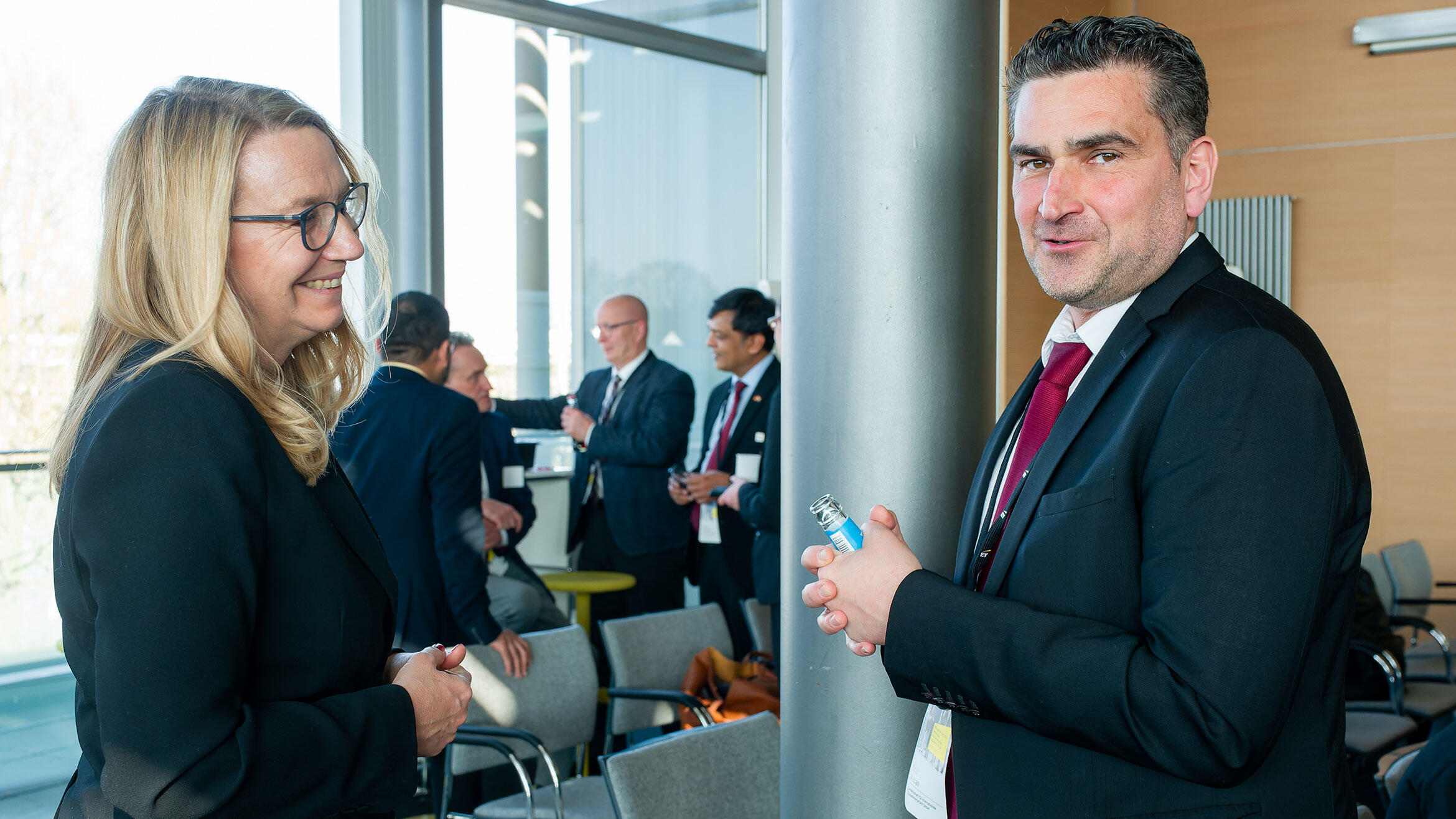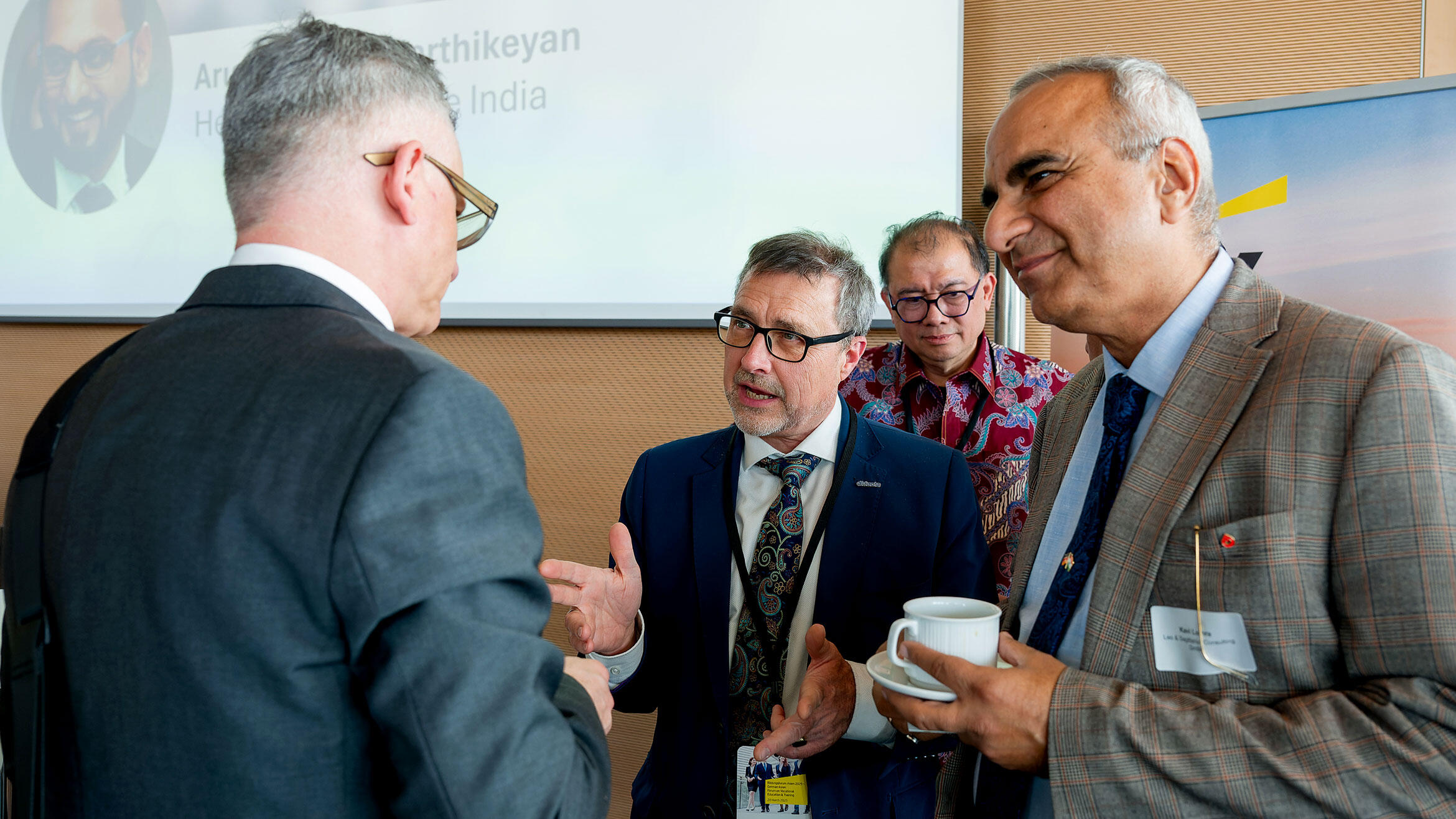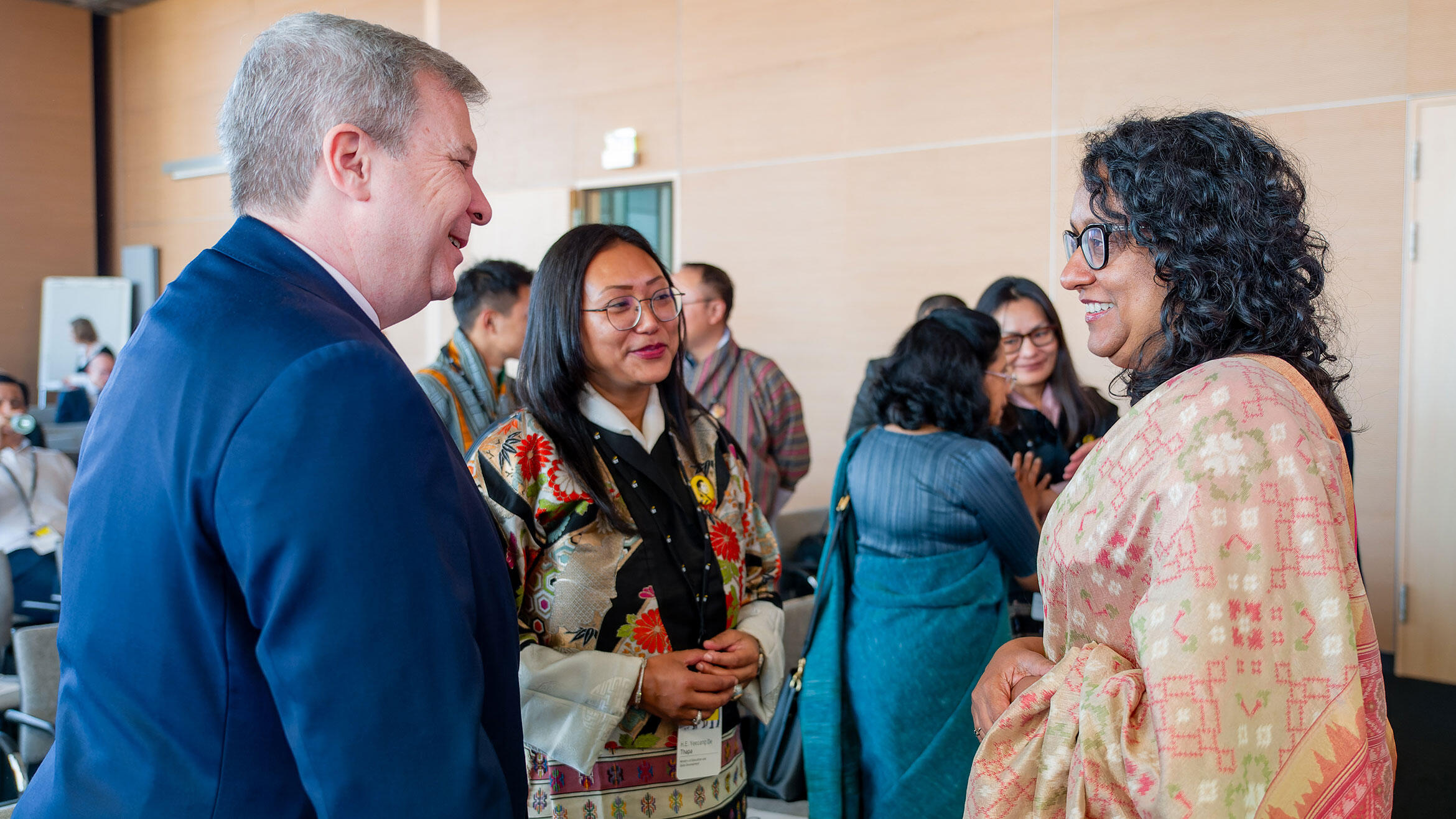Education Forum Asia: Education as an ongoing process
Around 100 participants gained valuable insights into current trends and developments in vocational education and training in Germany and Asia at the Education Forum Asia on 28 March 2025. iMOVE organized the event together with its long-standing partner OAV - German Asia-Pacific Business Association at Ernst & Young in Hamburg.
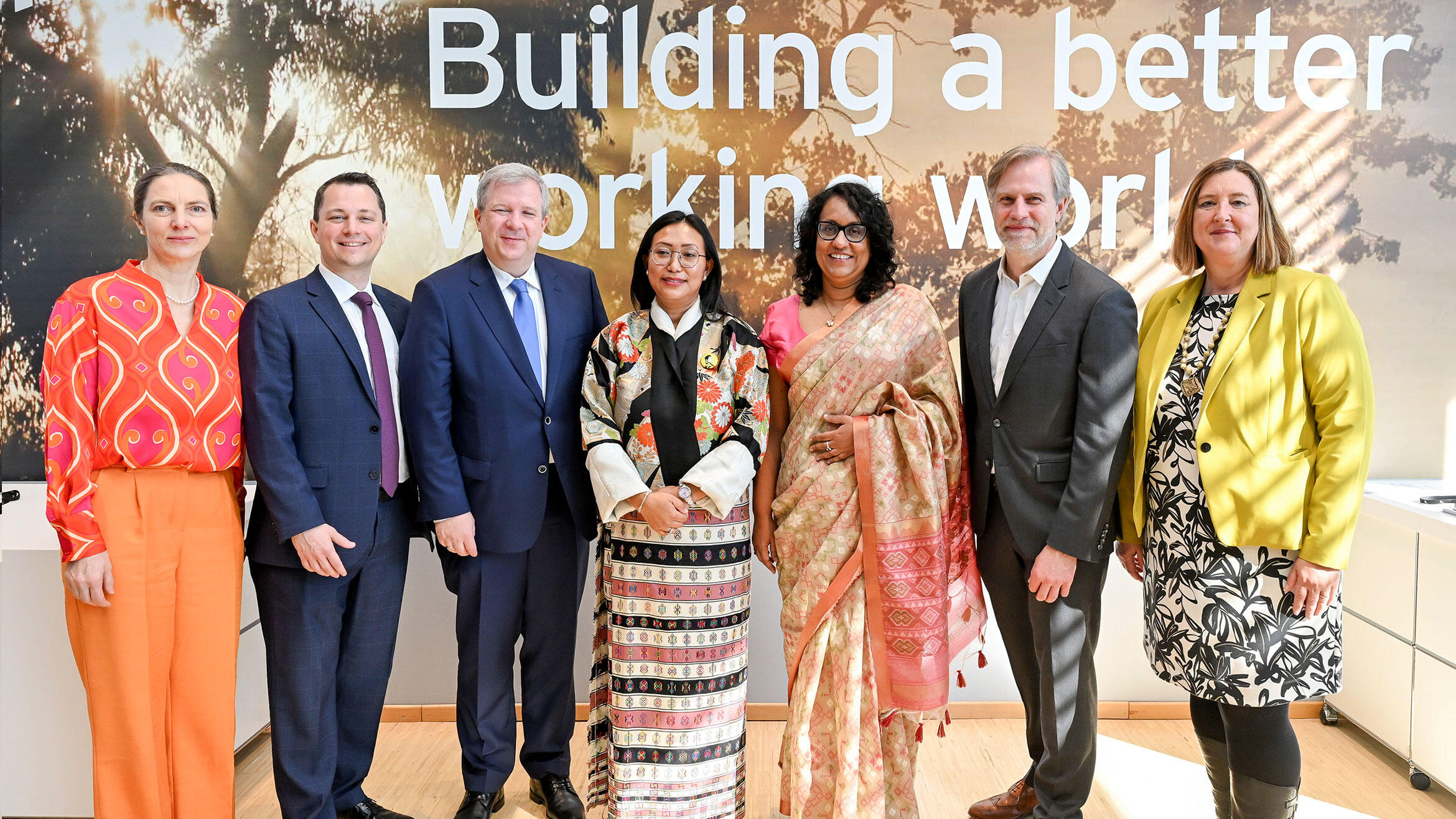
From left to right: Almut Rößner (OAV), Dr Andreas Werner (iMOVE), Dr Arnd Nenstiel (OAV), Her Excellency Yeezang De Thapa (Minister of Education, Science and Technology of the Kingdom of Bhutan), Her Excellency Dr Harini Amarasuriya (Prime Minister of the Democratic Socialist Republic of Sri Lanka), Olaf Riedel (Ernst & Young - EY), Birgit Thomann (Federal Institute for Vocational Education and Training - BIBB)
The basic idea that education is more of a journey than a destination was the focus of the German-Asian Forum on Vocational Education and Training 2025. Keynote speeches by recognised experts and high-calibre panel discussions presented key perspectives and solutions for changing education systems and markets. The dialogue between Asia and Germany offered fresh approaches for international educational cooperation.
The event began with welcoming remarks from Olaf Riedel (Ernst & Young - EY), Dr Arnd Nenstiel (OAV) and Dr Andreas Werner (iMOVE).
After the welcome address, Dr Harini Amarasuriya, Prime Minister of the Democratic Socialist Republic of Sri Lanka, and Yeezang De Thapa, Minister of Education, Science and Technology of the Kingdom of Bhutan, gave keynote speeches.
Among other topics, they highlighted the demographic development in their countries and the associated great importance of the further development and modernisation of vocational education and training as well as the challenges and opportunities arising from Industry 4.0 and future-oriented technologies.
The Prime Minister particularly emphasised that many young people in Sri Lanka wish to become medical doctors, but that the attractiveness of other career paths must also be strengthened in view of the requirements of the labour market. With regard to the topic of recruiting skilled workers, both speakers emphasised the crucial role of vocational education and training in preparing young people for the changing local and international labour markets.
Panel 1: Customised training programmes
The first panel discussion on "Challenges and opportunities for German training providers in Asia", moderated by Silvia Niediek (iMOVE), focussed on the successful combination of economic needs with suitable training programmes.
Alok Kumar from the National Skill Development Corporation (NSDC) International provided information on the changing framework conditions for training in India, while German training providers Jan Heinze (Heinze Akademie) and Dr Daniel Büttner (Colcons) described their experiences in Asian markets.
It became clear that governments are increasingly investing in vocational training, modernising training facilities and also updating the training of trainers. German providers are also partners in this process.
The dual education approach is considered a model in many Asian countries, but unfortunately often fails to be implemented due to bureaucratic obstacles. Other challenges include the fierce competition in the international education sector, financial considerations, political tensions and the need to carefully build trust locally.
Panel 2: Educational needs in key industries
The second panel centred on "joint education for key industries", moderated by Enrico Rühle (Smart Industry Campus).
Yeezang De Thapa explained in detail a development project in Bhutan that combines economic growth with mindfulness, holistic living and sustainability. In terms of content, it aims to preserve craftsmanship and integrate development initiatives at the same time. Another focus was on a national transformation programme that has aimed to equip Bhutan's youth with professional skills for a successful future since 2024. Over 7,000 young people have already benefited from this programme.
Tuan Haji Ahmad Solihin Mohamed Yusoff (German-Malaysian Institute, GMI) emphasised that the more than 700 German companies operating in Malaysia play a crucial role in promoting technologies and training qualified specialists. The GMI, which he heads, also cooperates with them.
Azrina Binti Hashim from the Malaysian Investment Development Authority (MIDA) explained the urgent need for 20,000 skilled workers in the semiconductor industry in her country, which can only be met by 2030 if the attractiveness of vocational training can be increased.
Tobias Bolle from the German Chamber of Commerce and Industry (DIHK) emphasised that the private sector should be more involved in the development of training curricula in order to enable skills to be acquired more quickly. Internationally, the focus should increasingly be on market-orientated design. In this context, he emphasised the importance of upskilling and reskilling in order to quickly prepare skilled workers for the changes in the world of work.
Panel 3: Digital infrastructure for multidimensional learning
The third panel discussed "how vocational education and training can actively shape digital change".
Dr Nader Imani (Festo Didactic) pointed out that not all people worldwide have access to high-quality education because the corresponding infrastructure is often lacking. He emphasised how digital learning and teaching can support nations and industries in providing skills-based education and keeping pace with current industrial trends. According to him, the multidimensionality of digital learning offers numerous advantages that make it possible to work towards achieving Sustainable Development Goal 4 of "Quality Education" by 2030.
Samuel Siahaan from the German-Indonesian Alumni Association ALJERIN pointed out the considerable discrepancy between the IT equipment at educational institutions and the requirements of industry in his home country. In his view, this is a major problem, especially for young people who have grown up with digital media, and reduces the attractiveness of learning.
Florian Huber from EY took up the topic of artificial intelligence (AI) and emphasised its growing importance in today's working world. AI could not only revolutionise productivity in various industries, but also represents a key area for the further development of educational opportunities.
In conclusion, moderator Dr Norbert Völker from the Didacta Association summarised that flexible learning is essential in view of the unpredictability of technological developments and changing requirements in the world of work. According to him, it is also important to recognise and integrate informally acquired skills and knowledge. He also emphasised that upskilling is crucial in order to prepare people and societies for the future in the long term.
Panel 4: Fair skilled labour migration
The fourth panel focussed on "fair migration". The concrete focus was on models and examples of success in which those involved can benefit from migration in both the countries of origin and the destination countries. Possible strategies for retaining skilled workers in Germany were also discussed.
Nils Haupt from Hapag-Lloyd reported that his company, as an internationally active organisation, does not experience any significant difficulties with language barriers, as most communication throughout the corporation takes place in English. As a model for recruiting skilled labour, he presented an "all-round carefree package" in which the skilled workers receive comprehensive support from their first contact with Hapag-Lloyd to their entry into the working world in Germany. He particularly emphasised that Hapag-Lloyd attaches great importance to cultural diversity. One example of this is that all the employees' major national holidays are celebrated. In addition, regular external activities and events are organised to promote a sense of belonging.
In this context, Birgit Thomann from the Federal Institute for Vocational Education and Training (BIBB) argued in favour of realistic expectation management, i.e. clearly communicating opportunities and challenges to potential trainees and skilled workers prior to their arrival in Germany. Skilled labour mobility and the recruitment of skilled workers are also playing an increasingly important role for BIBB's VET International Department. The German education and training sector, which iMOVE has been supporting for years, has excellent international networks. These networks should be utilised in a targeted manner to bring international talent together with German companies.
Kathrin Junken from the Nepal Secretariat of Skills and Training presented the triple-win approach, which benefits both young Nepalese and local and German companies when recruiting skilled labour. The initiative focuses on vocational education and training for people from low-income backgrounds, who often have limited access to education and qualification programmes. The aim is also to establish a strong ecosystem for dual vocational training in Nepal that creates career opportunities.
In the discussion led by Sören Konaretzki (OAV), it was also mentioned that the migrants' family members must be taken into account. It is not enough just to support the skilled workers themselves, for example through language courses and integration measures - their partners and families must also be included in the integration process if they are to develop long-term prospects of staying.
Other factors for the successful migration of skilled workers include a further strengthening of the welcoming culture and further facilitation of the recognition of job and educational qualifications, as well as a politically stable migration policy in Germany in the long term.
Spotlights
Between the panels, two expert spotlights provided important information.
Christian Oelfke from the Federal Office for Foreign Affairs (BfAA) explained the latest activities in the area of bureaucracy reduction and the ongoing efforts of his organisation to optimise administrative processes. The focus was particularly on the ongoing reforms in the visa process, which promise a noticeable increase in efficiency. With digital support, 130,000 visa applications are to be processed in the current year.
Arunachalam Karthikeyan (iMOVE contact point in India) reported on India's intention to become the skills centre of the world and to include the ten to twelve million young people who graduate from school in India every year. Many of them would like to pursue a professional career in Germany and would like to see the development of a model for fair and ethical mobility to Germany. In particular, there is a need to expand language learning programmes with the help of German providers.
Conclusion and outlook
The event showed once again that the exchange of success stories and the development of joint strategies will continue to be of central importance in the future for strengthening global competitiveness and for the sustainable recruitment of skilled labour. It also became clear that the private sector can play a decisive role in shaping the success of international skilled labour mobility through tailor-made qualifications and fair recruitment conditions.
